The Academy of Achievement brought 260 graduate students from 50 countries to New York City for the 44th annual International Achievement Summit, June 1-4, 2005.
Past and present honorees of the Academy of Achievement convened in New York City for the 2005 International Achievement Summit. From June 1 through June 4, a host of internationally renowned statesmen, scientists, artists and humanitarians shared their wisdom and experience with 260 outstanding graduate students from 50 countries, and inducted more than 25 new members into the Academy.
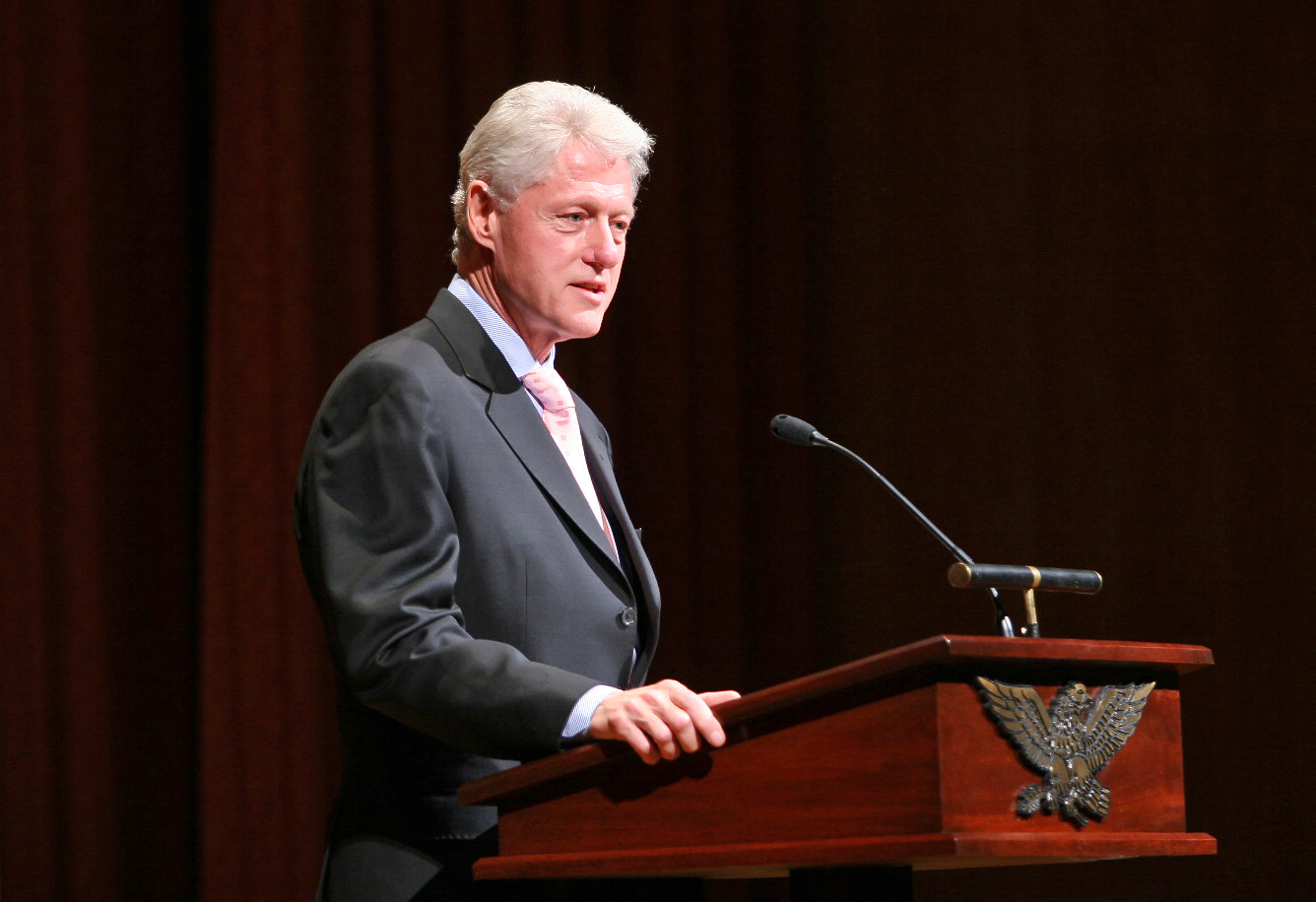
World leaders in attendance included: the 42nd President of the United States, William J. Clinton; Her Majesty Queen Rania of Jordan; President Festus Mogae of Botswana; President Vaira Vike-Freiberga of Latvia; President Abdoulaye Wade of Senegal; and former Secretary of State Colin L. Powell. Among the attendees were four recipients of the Nobel Prize for Peace: Dr. Shirin Ebadi, Archbishop Desmond Tutu, the Honorable Lech Walesa, and Elie Wiesel.
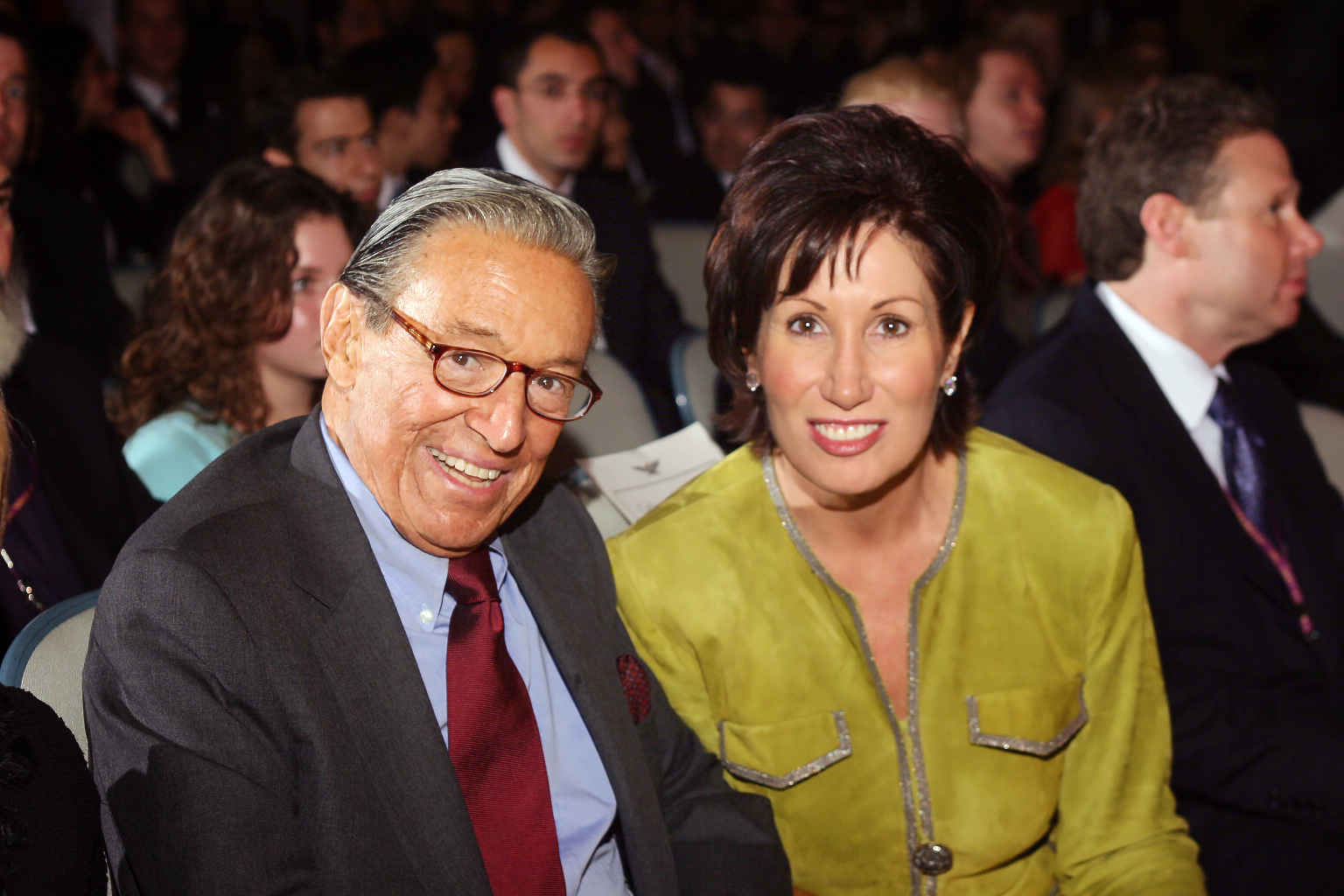
Distinguished public servants among the Academy members included Supreme Court Justice Anthony M. Kennedy, Attorney General Alberto Gonzales, Transportation Secretary Norman Mineta, Mayor Richard M. Daley of Chicago, the Honorable Tom Daschle and Dr. Antonia Novello. The former Treasury Secretary, Dr. Lawrence Summers, now the President of Harvard University, was honored, along with the President of the Massachusetts Institute of Technology, Dr. Susan Hockfield, and the President of New York University, Dr. John Sexton.
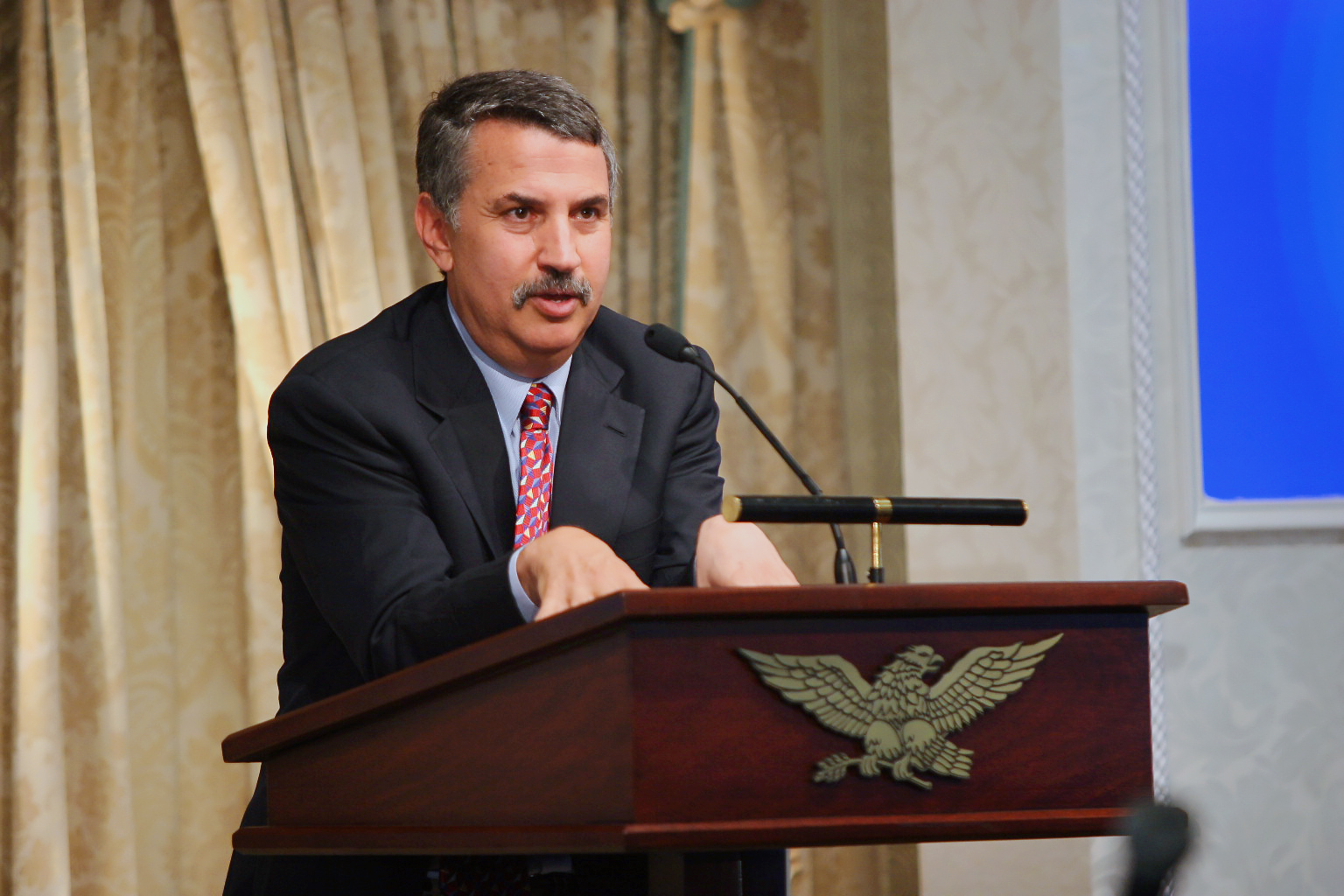
Among the constellation of acclaimed scientists at the Summit were eight recipients of the Nobel Prize. Recent Nobel honorees who joined the Academy at the 2005 Summit were Dr. Richard Axel and Dr. Linda Buck (Medicine); Dr. Aaron Ciechanover (Chemistry); and Dr. David Gross and Dr. Frank Wilczek (Physics). The only living American to have received the Nobel Prize for Literature, Toni Morrison, was one of a number of new honorees from the world of letters, including novelists John Irving and Tom Wolfe.
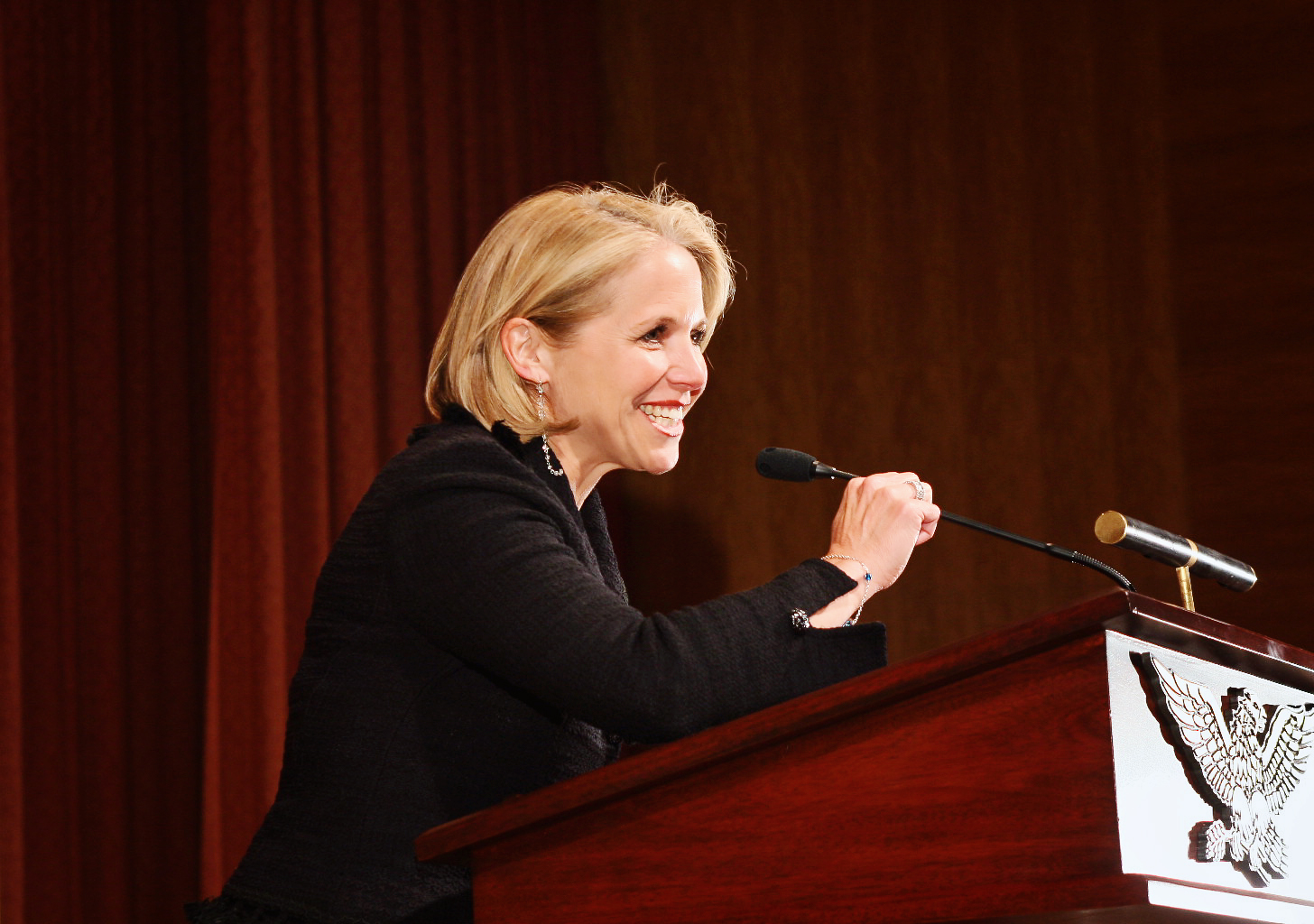
Pulitzer Prize recipients in attendance included: playwright Edward Albee; biographer A. Scott Berg; journalist Thomas L. Friedman; composer Wynton Marsalis; authors Frank McCourt, N. Scott Momaday and Neil Sheehan; and composer-lyricist Stephen Sondheim. The world of music was further represented by Academy members Kathleen Battle, John Fogerty, Naomi and Wynonna Judd, B.B. King and Itzhak Perlman.
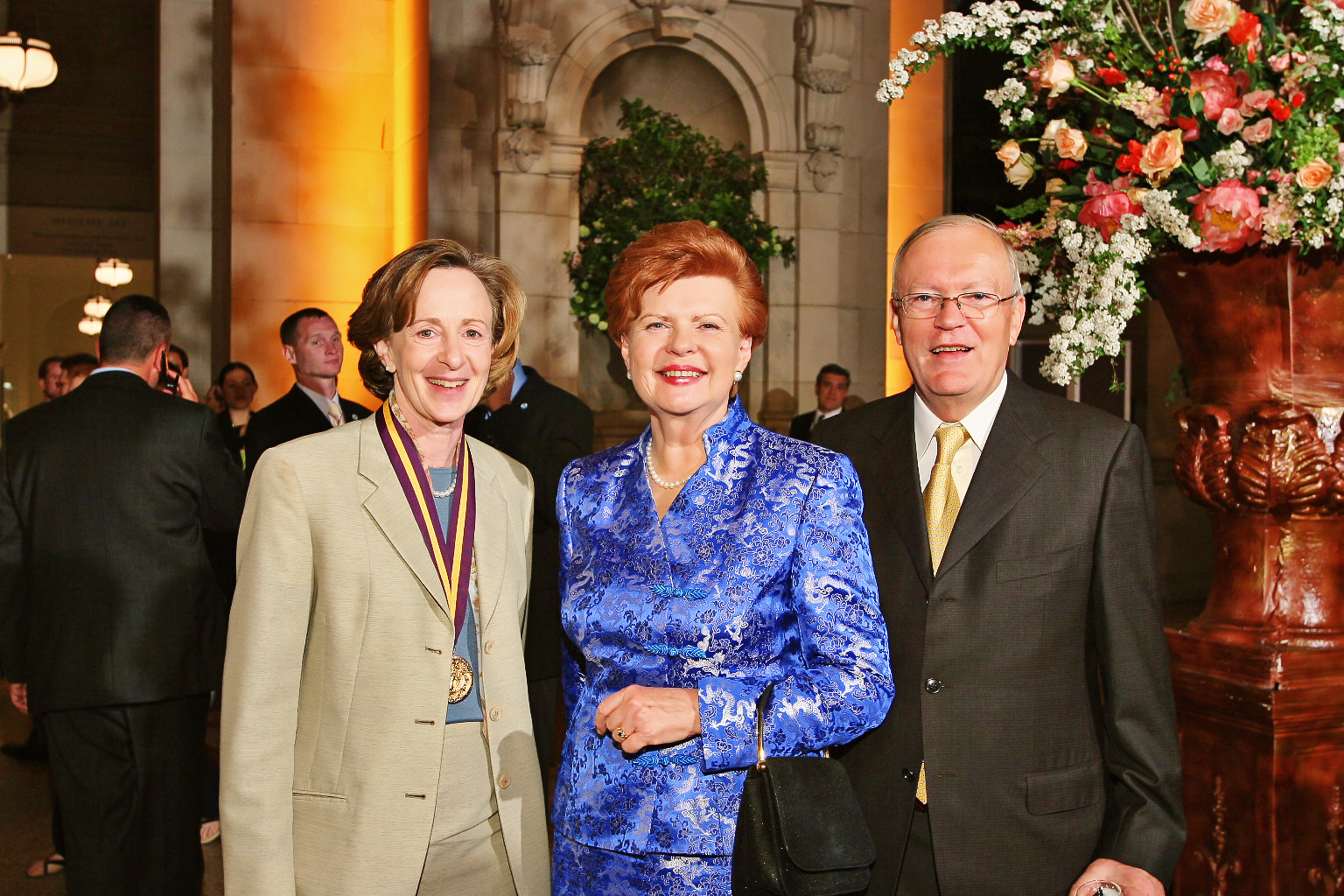
Leaders of the motion picture industry and the acting profession included Star Wars creator George Lucas and actors Sally Field, Michael J. Fox, James Earl Jones and Denzel Washington. Journalism and the news media were represented by Academy members Katie Couric, Sam Donaldson, Chris Matthews, Tim Russert and Mike Wallace.
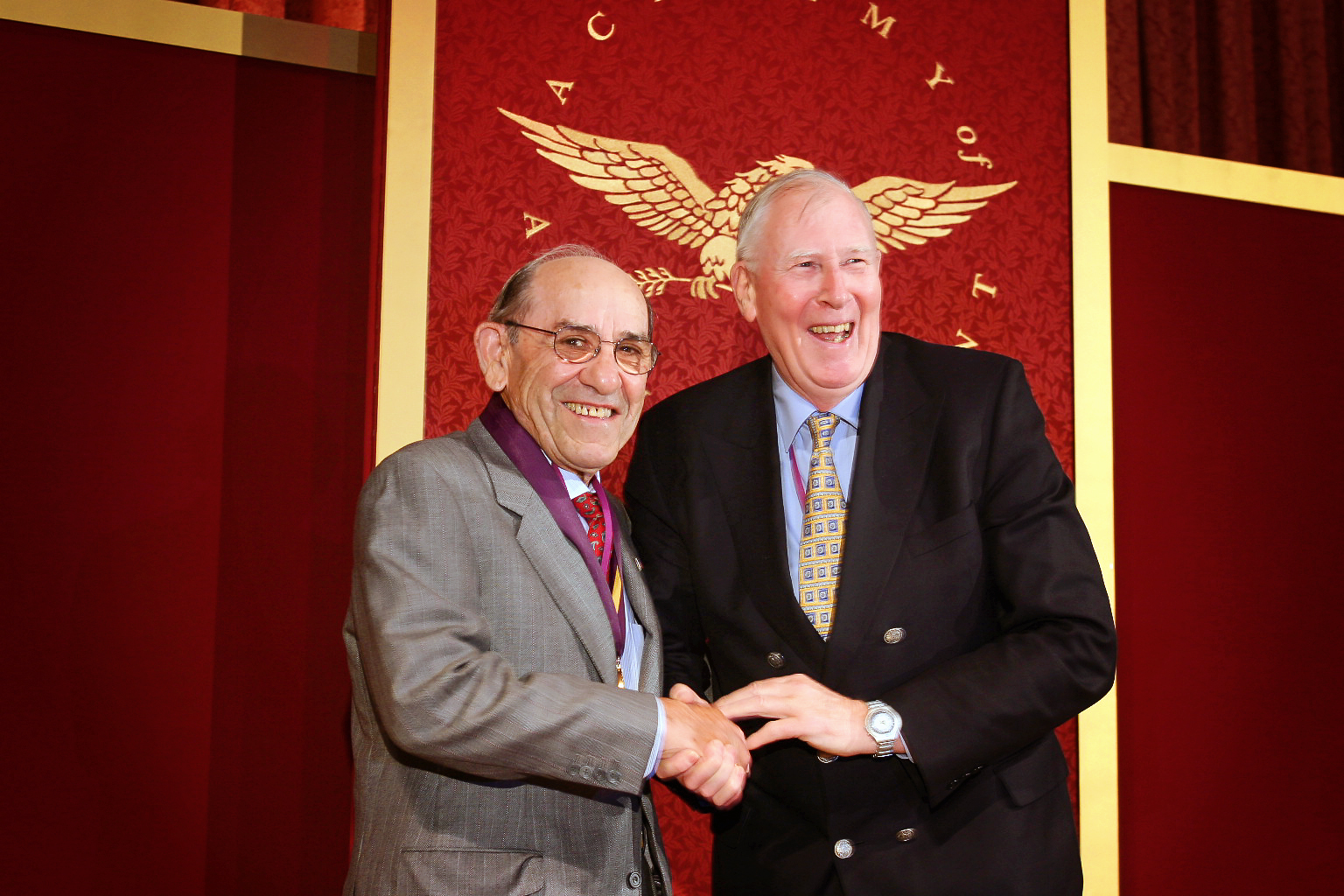
The Mayor of New York City, the Honorable Michael R. Bloomberg, was the Host of this year’s Summit; Catherine B. Reynolds, Chairman and CEO of The Catherine B. Reynolds Foundation, was the Host Chairman. The Summit was made possible by a generous grant from The Catherine B. Reynolds Foundation. Honorees and guests of the Academy stayed at the famed St. Regis Hotel, the most charming and elegant of the city’s historic gathering places. Many of the Summit’s symposium sessions, luncheons and dinners were held in the glittering Roof Ballroom of the St. Regis.
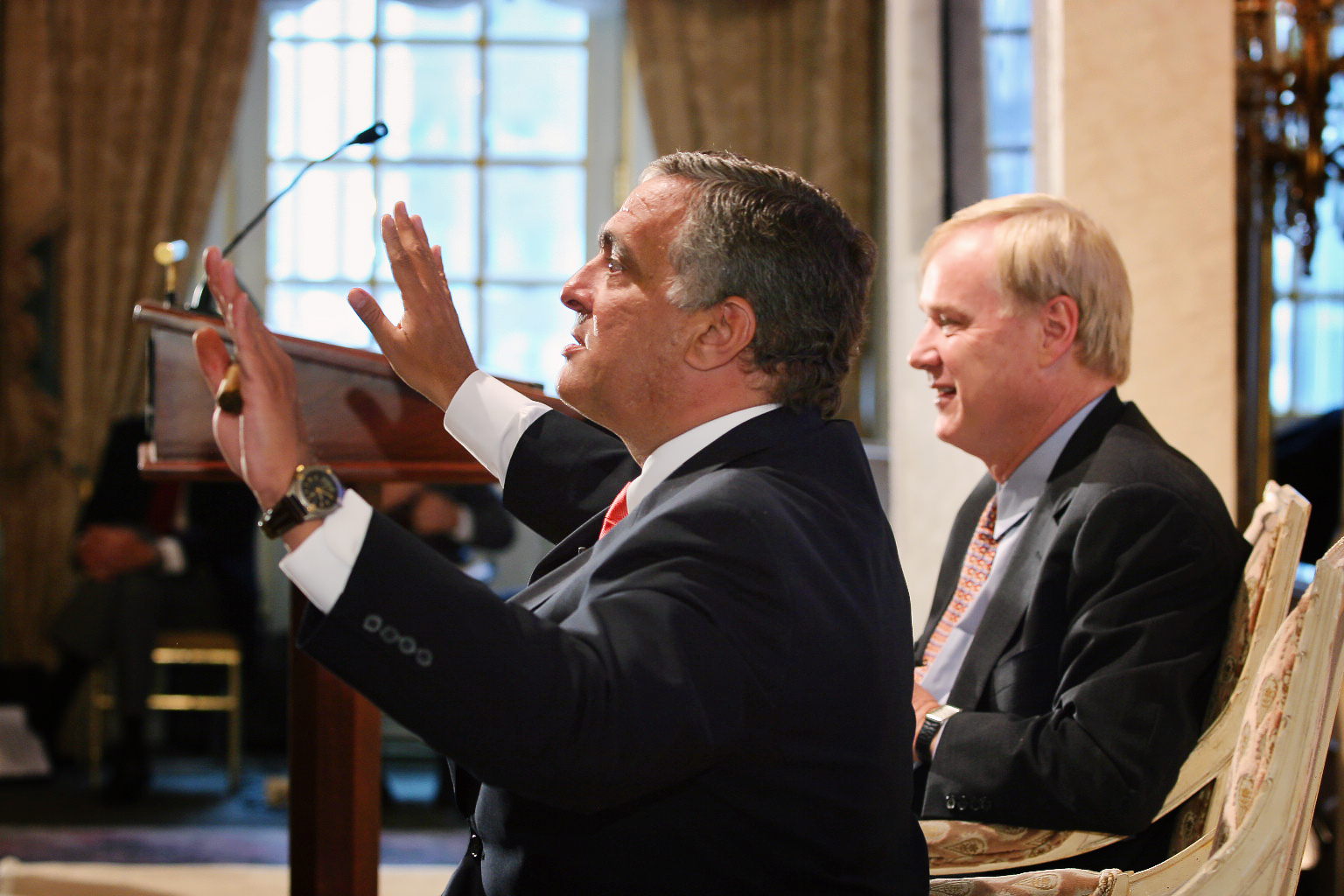
The Summit opened at New York’s Metropolitan Museum of Art with a stirring address by a member of the Academy’s Class of 2002, the 42nd President of the United States, William J. Clinton. The former president addressed the need for global cooperation among the next generation of leaders. Mr. Clinton emphasized the positive aspects of globalization, asserting that the world drawing closer together promises improvements in the quality of life for all. This theme, introduced by President Clinton on the first night, would be underscored on the last day of the Summit by journalist Thomas L. Friedman, who detailed the benefits and challenges of an international information economy in a presentation based on his best-selling book, The World Is Flat. President Clinton also re-affirmed the importance of America’s historic role as an exemplary democracy, and praised the American people’s consistent preference for optimistic leadership in the nation’s highest office. The mutual delight of the former president and the international student delegates in the free exchange of ideas was evident in the spirited question-and-answer session that followed Mr. Clinton’s address.
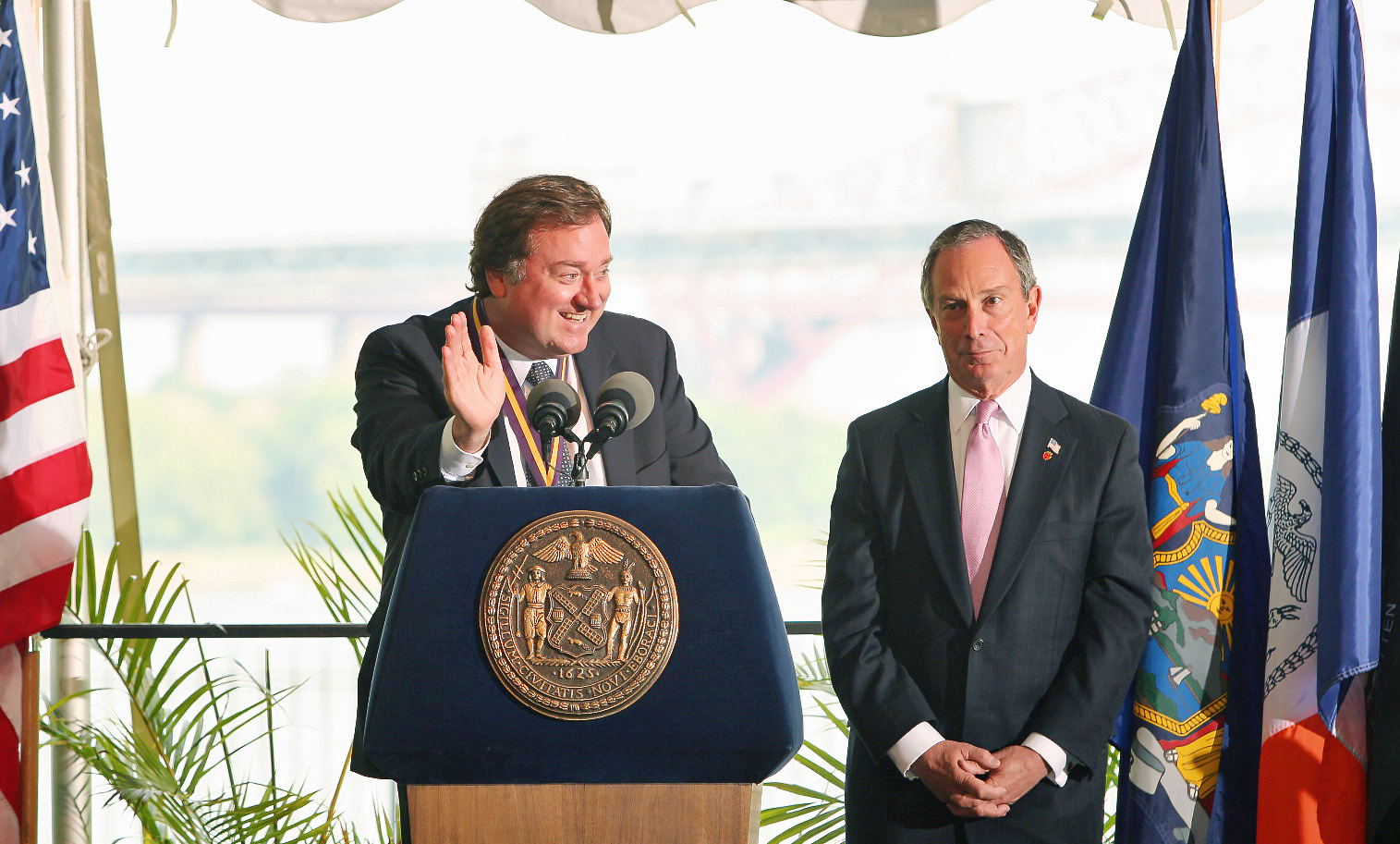
The opening evening continued with a disarmingly informal presentation by Katie Couric, the host of NBC’s popular Today Show. Miss Couric spoke amusingly of the pitfalls and rejection she overcame in her rise to the top of her profession. She also spoke more seriously of the personal loss that led her to become the nation’s leading spokeswoman for colon cancer detection and research.
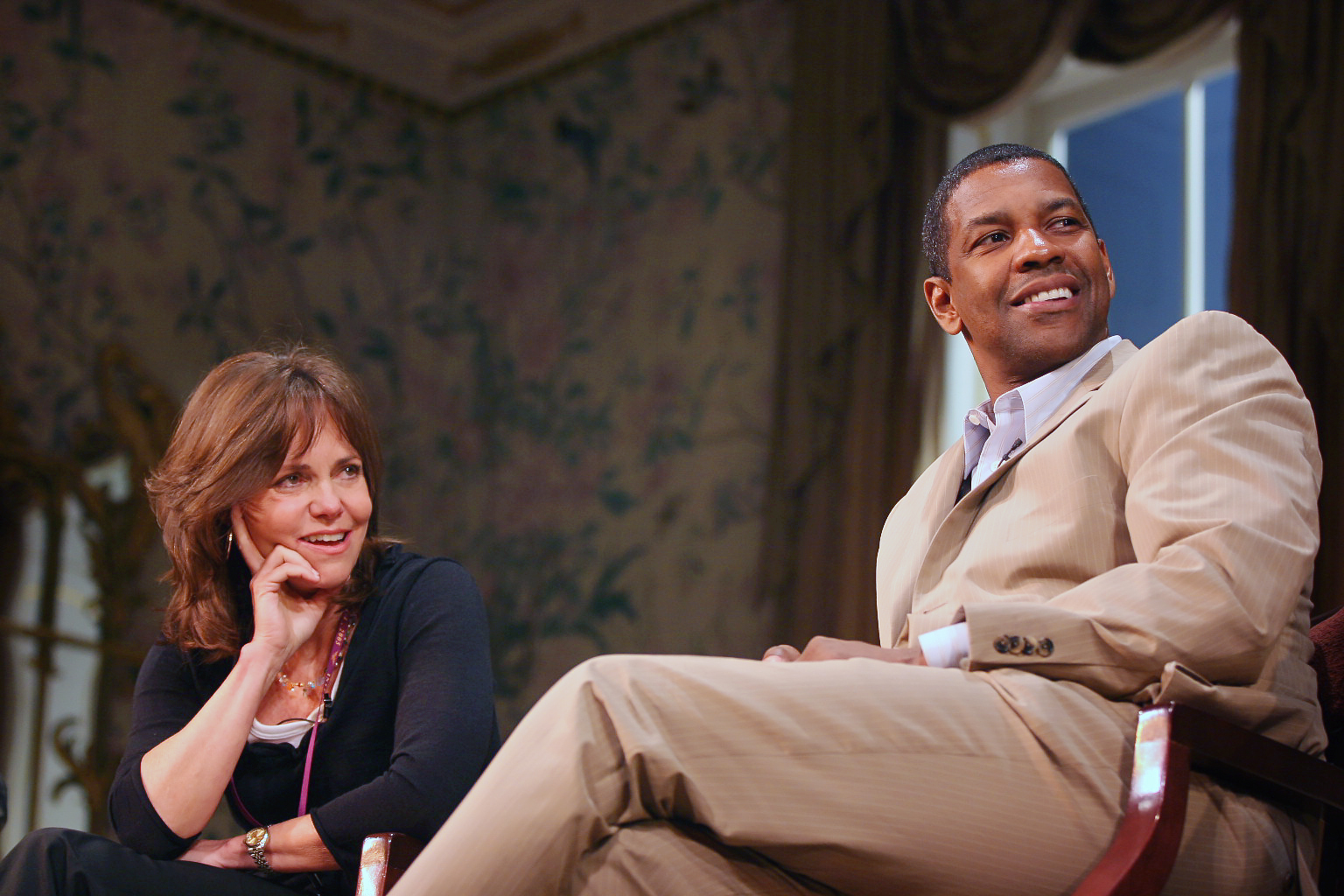
Two new members of the Academy of Achievement were inducted on the first evening of the Summit: the President of MIT, Dr. Susan Hockfield; and baseball legend Yogi Berra, who offered the Academy students one of his often-quoted aphorisms: “When you come to a fork in the road, take it.” Berra was presented with the Gold Medal of the Academy by track and field legend Sir Roger Bannister. The evening concluded with a sparkling dinner in the awe-inspiring Temple of Dendur, a first-century Egyptian temple reassembled, stone by stone, in a vast sky-lit chamber of the Metropolitan.
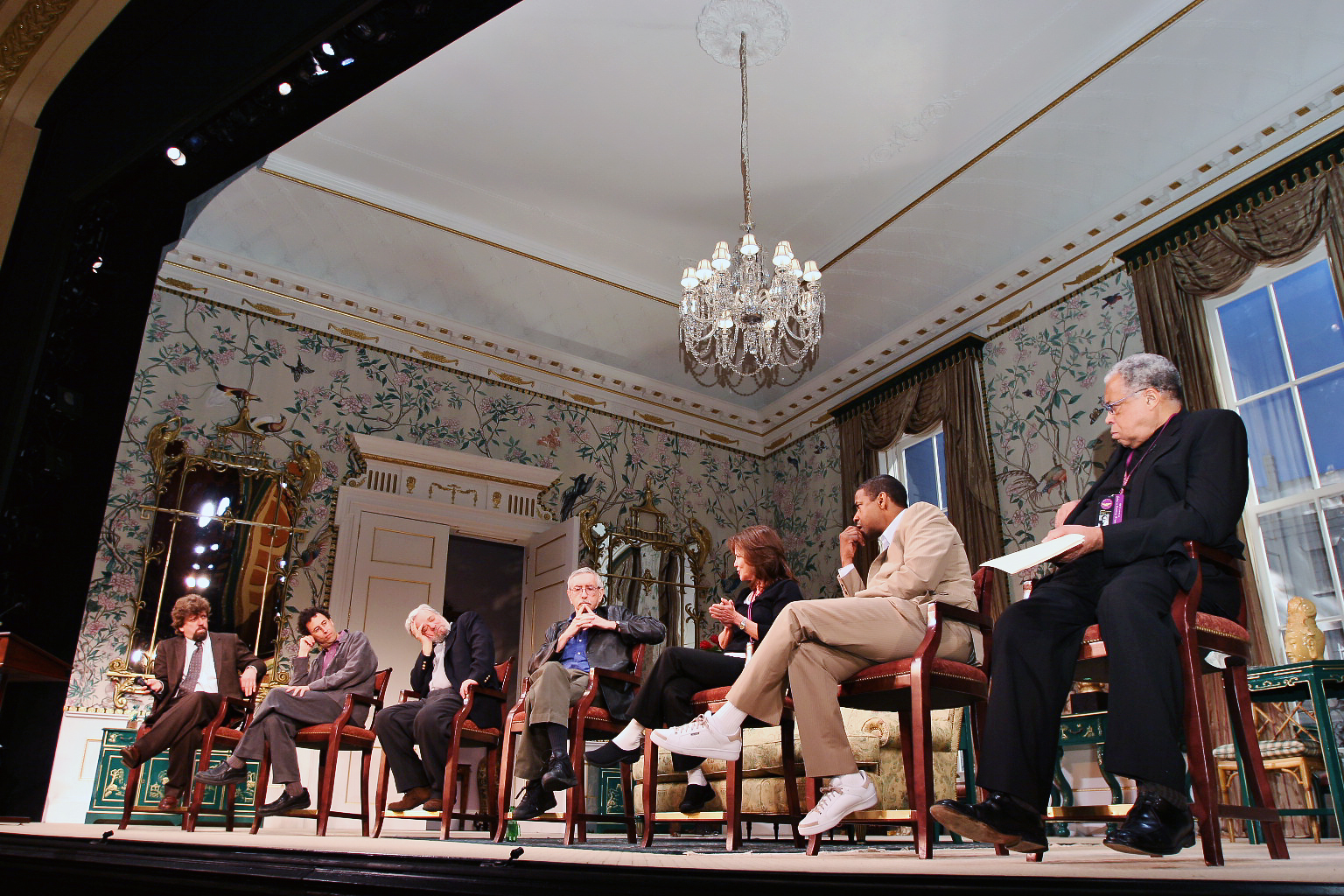
The first morning’s proceedings began in the Roof Ballroom of the St. Regis Hotel, as MSNBC Hardball Host Chris Matthews moderated a thought-provoking discussion between the Academy’s students and former CIA Director George Tenet.
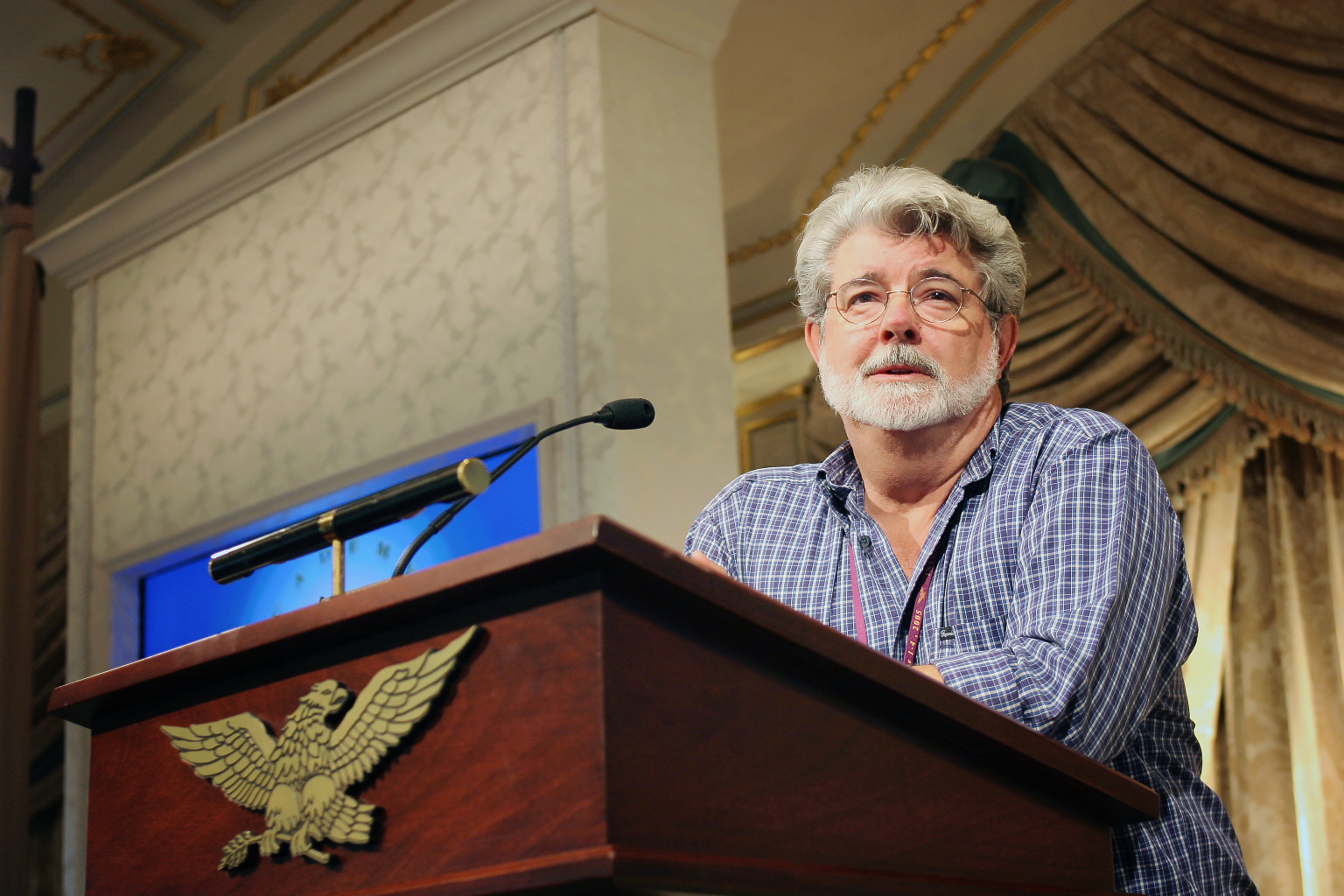
A penetrating discussion of the relationship of religion and science was led by Dr. Francis Collins, Director of the National Institute for Human Genome Research. Panelists included famed neurosurgeon Dr. Ben Carson; Sir Paul Nurse, President of Rockefeller University and recipient of the Nobel Prize for Medicine; and anthropologist Donald Johanson, discoverer of the celebrated “Lucy” fossils.
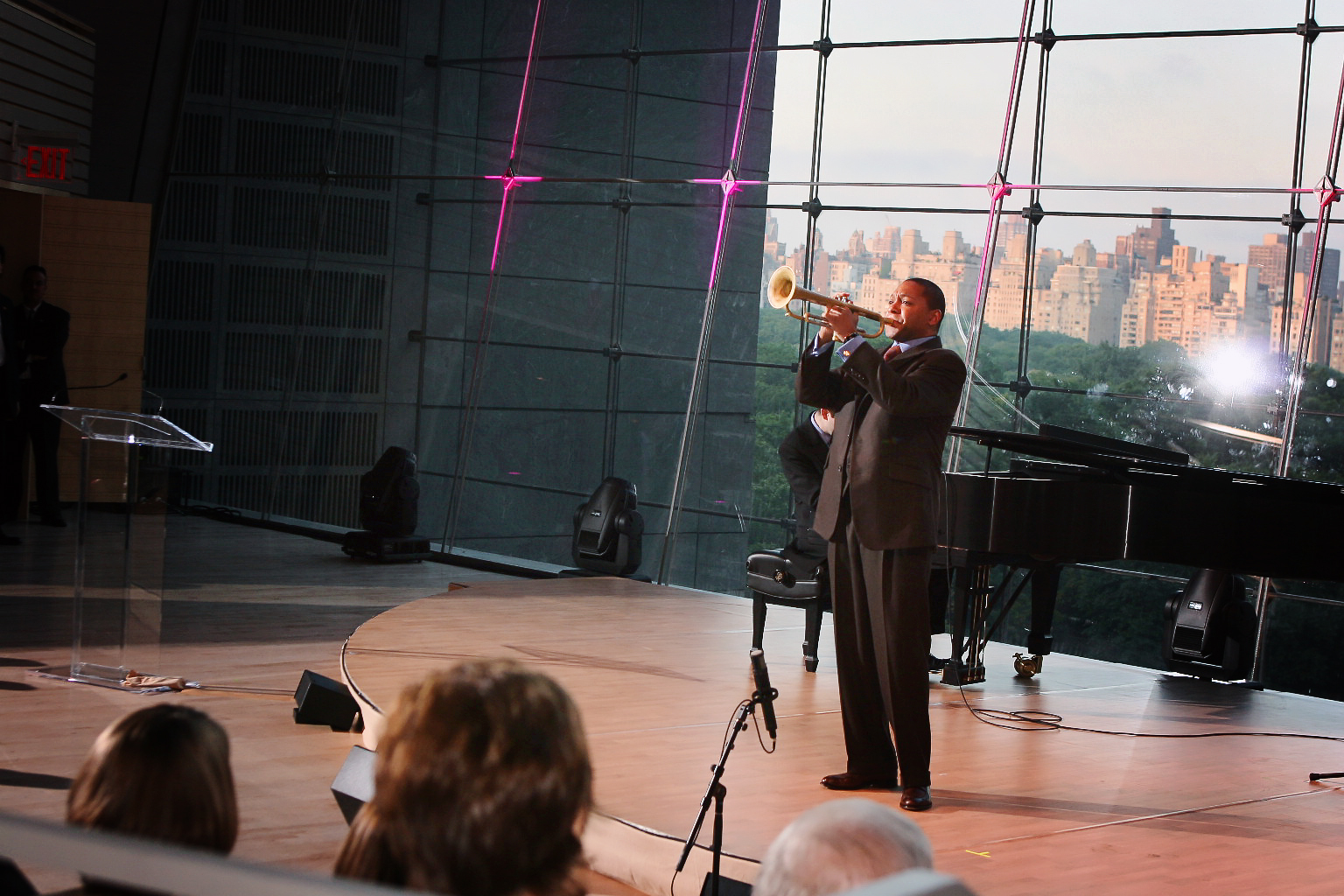
The morning’s speakers also included the Pulitzer Prize-winning author of Angela’s Ashes, Frank McCourt, and Oscar-winning actress Sally Field. A thoughtful discussion of Health and Public Policy was moderated by David Gergen, advisor to four presidents and Director of the Center for Public Leadership at Harvard’s Kennedy School of Government. Academy members on the panel included the Mayor of Chicago, Richard M. Daley; former U.S. Senator Tom Daschle; Dr. Antonia Novello, the former Surgeon General of the United States; and the pioneer of integrative medicine, Dr. Andrew Weil.
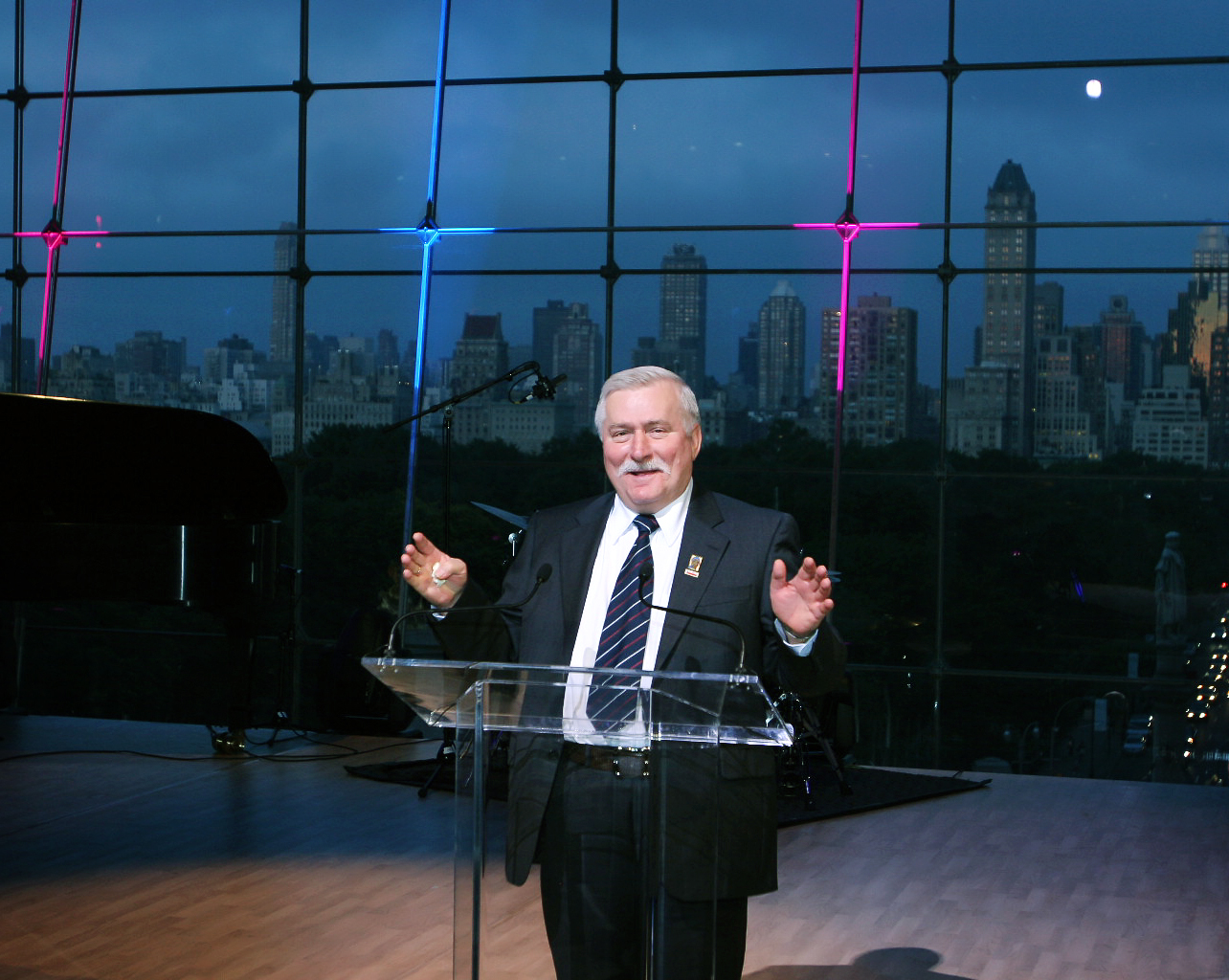
At midday, Academy members, guests and student delegates enjoyed a luncheon on the lawn at historic Gracie Mansion, the official residence of the Mayor of New York, as guests of the Summit’s Host, Mayor Michael R. Bloomberg. After lunch, the assembly enjoyed an entertaining and informative presentation by Meet the Press host Tim Russert, who was inducted into the Academy by Mayor Bloomberg himself.
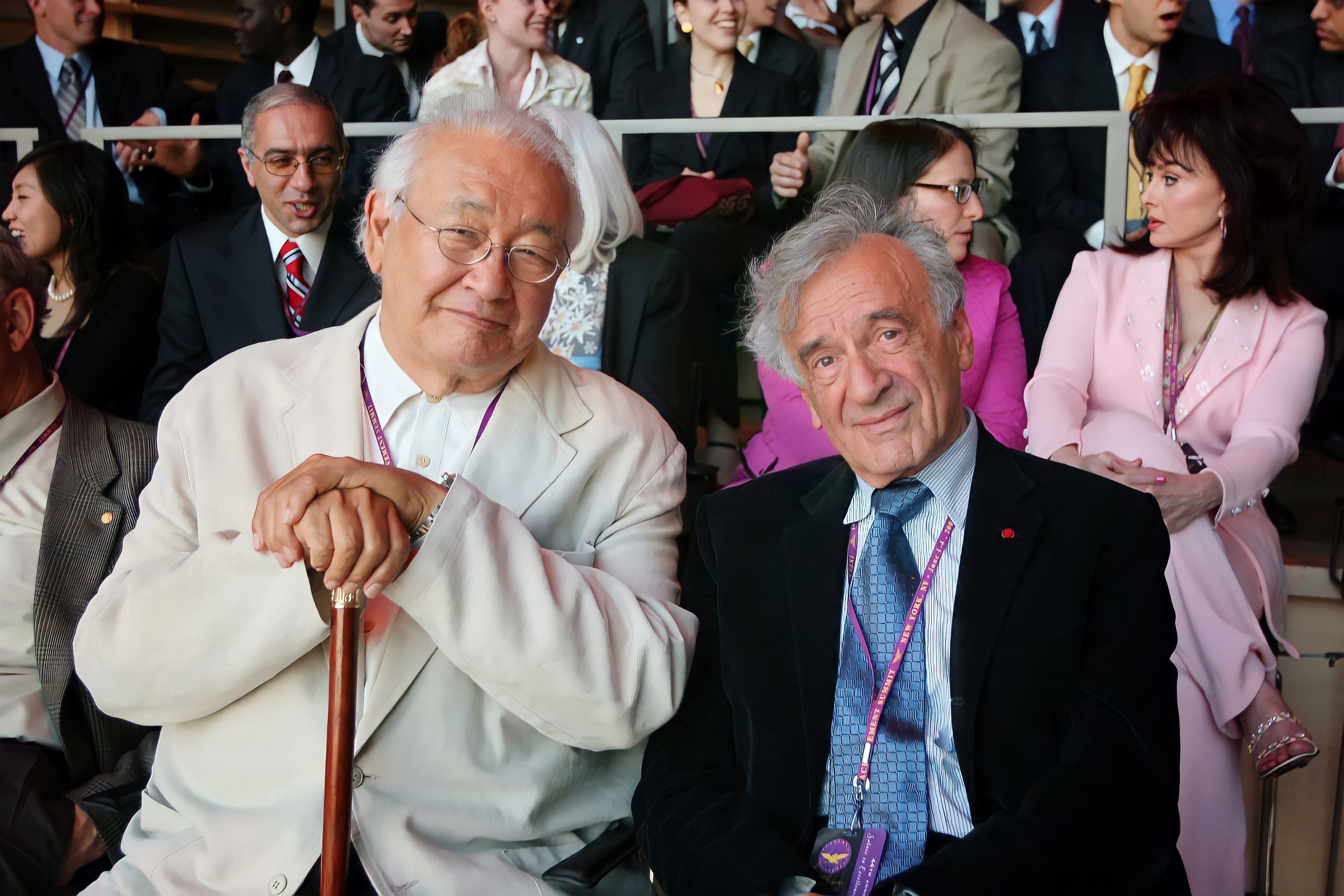
Thursday afternoon took the Academy to the Broadway theater district for a once-in-a-lifetime gathering of theatrical luminaries. The Artistic Director of New York’s Public Theater, Oskar Eustis, conducted the discussion between the Academy’s student delegates and a panel including: America’s foremost playwright, Edward Albee; Broadway’s most honored composer, Stephen Sondheim; Angels in America author Tony Kushner; the distinguished actor James Earl Jones; and two-time Oscar winners Sally Field and Denzel Washington. Following the panel discussion, Denzel Washington and Stephen Sondheim were both inducted into the Academy.
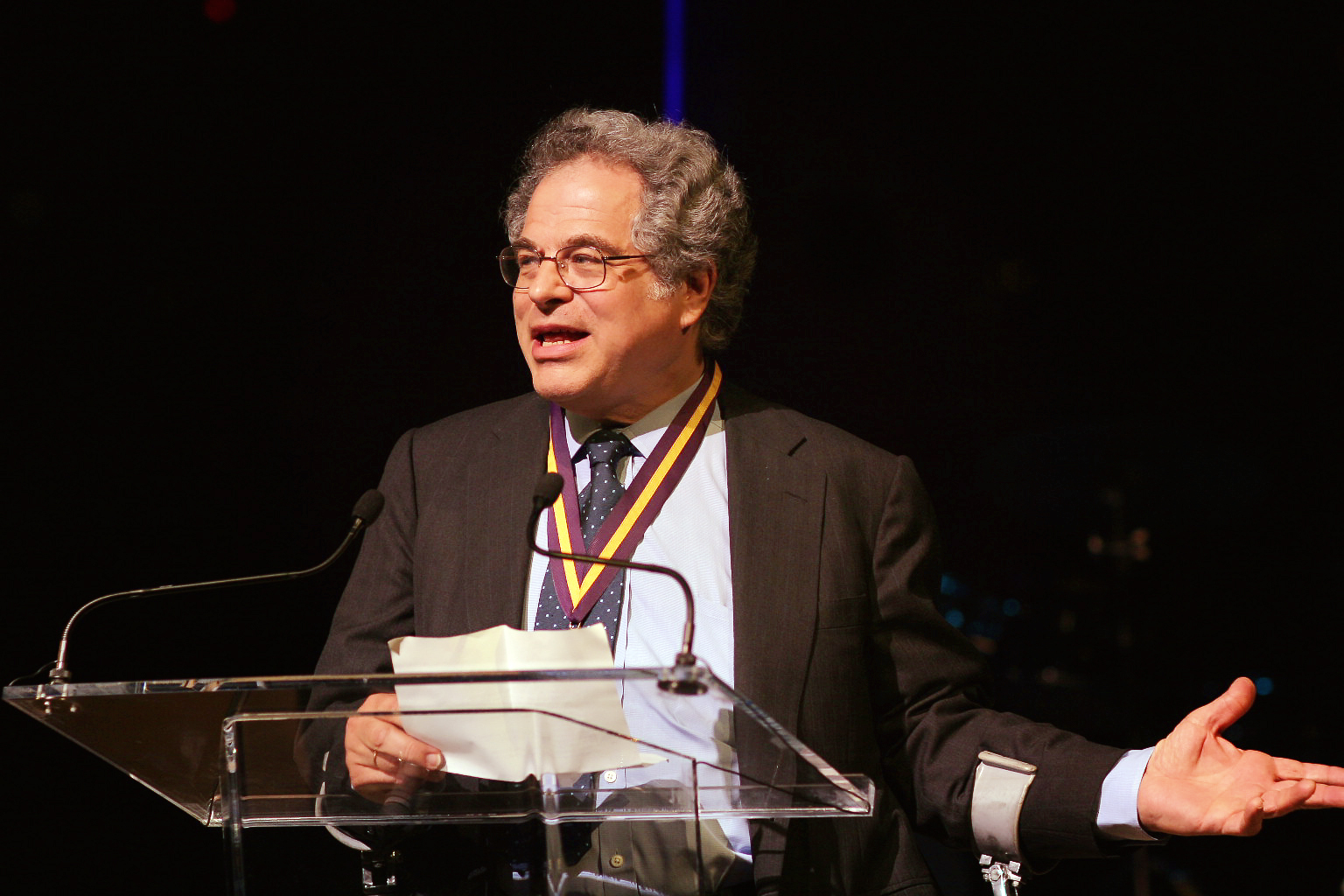
On returning to the St. Regis, special guest Dean Kamen, inventor of the Segway upright scooter, demonstrated a revolutionary water-purification system, which may supply clean water to parts of the globe where this is the rarest and most precious of natural resources. The Academy also heard from Nobel Prize-winning physicists David Gross and Frank Wilczek, Egyptologist Kent Weeks and Sir John Bond, Chairman of HSBC Holdings. The afternoon program culminated in a free-wheeling question-and-answer session with Star Wars creator George Lucas.
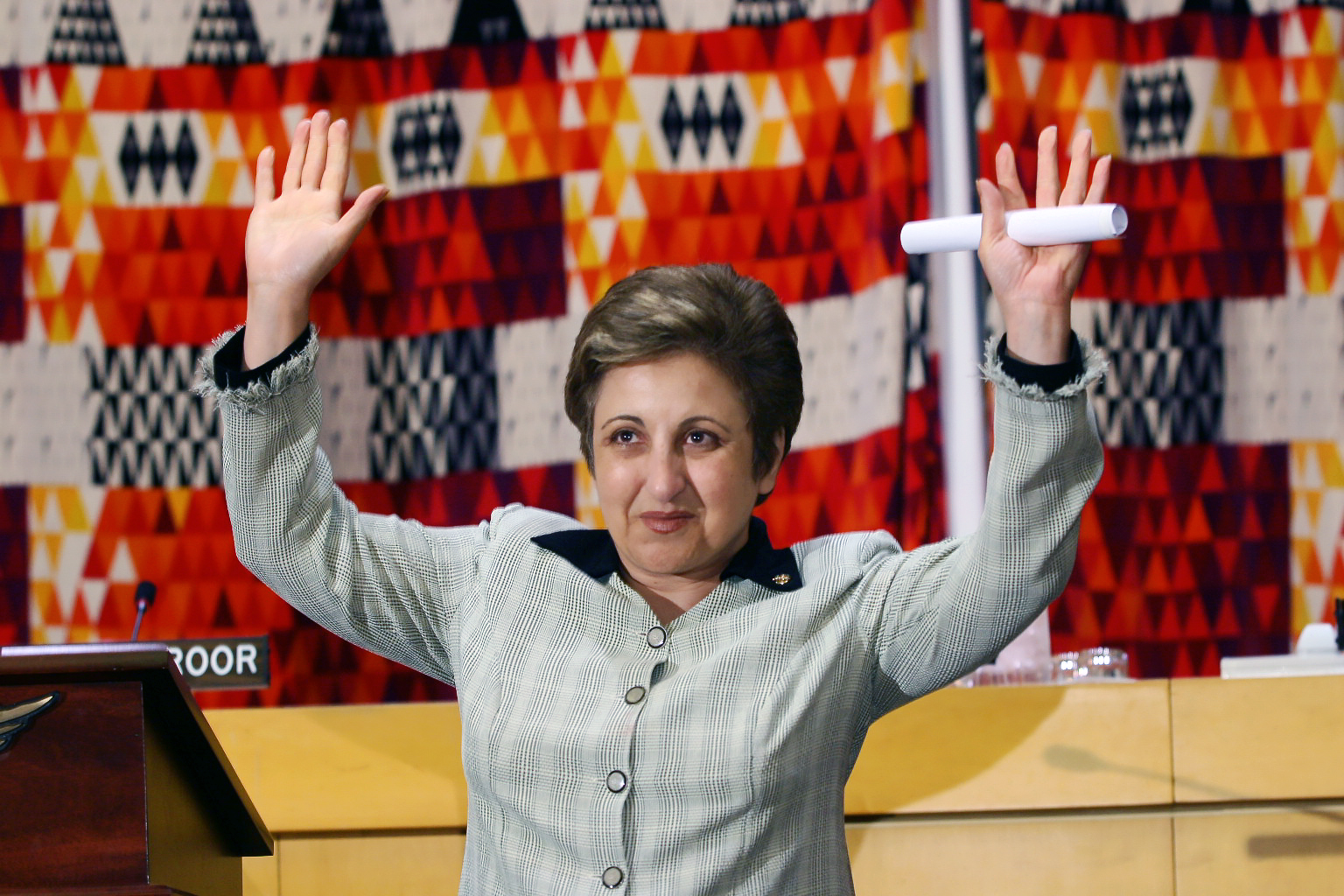
The Academy enjoyed an exhilarating evening of music, dance and inspiration in the new home of Jazz at Lincoln Center, Frederick P. Rose Hall. The assembly gathered in the Allen Room, whose 50-foot glass wall offered a breathtaking view of Columbus Circle and Central Park as night fell over the city. Brilliant student delegates of the Academy performed throughout the evening, including pianists Alexandre Pirojenko and Adam Golka. The evening began on an unexpectedly whimsical note with a surprise performance by Dr. Francis Collins. Accompanying himself expertly on guitar, Dr. Collins brought down the house with his original lyrics to the standard, “My Way,” presenting a satirical view of academic life that struck a resounding chord with the Academy’s student delegates.
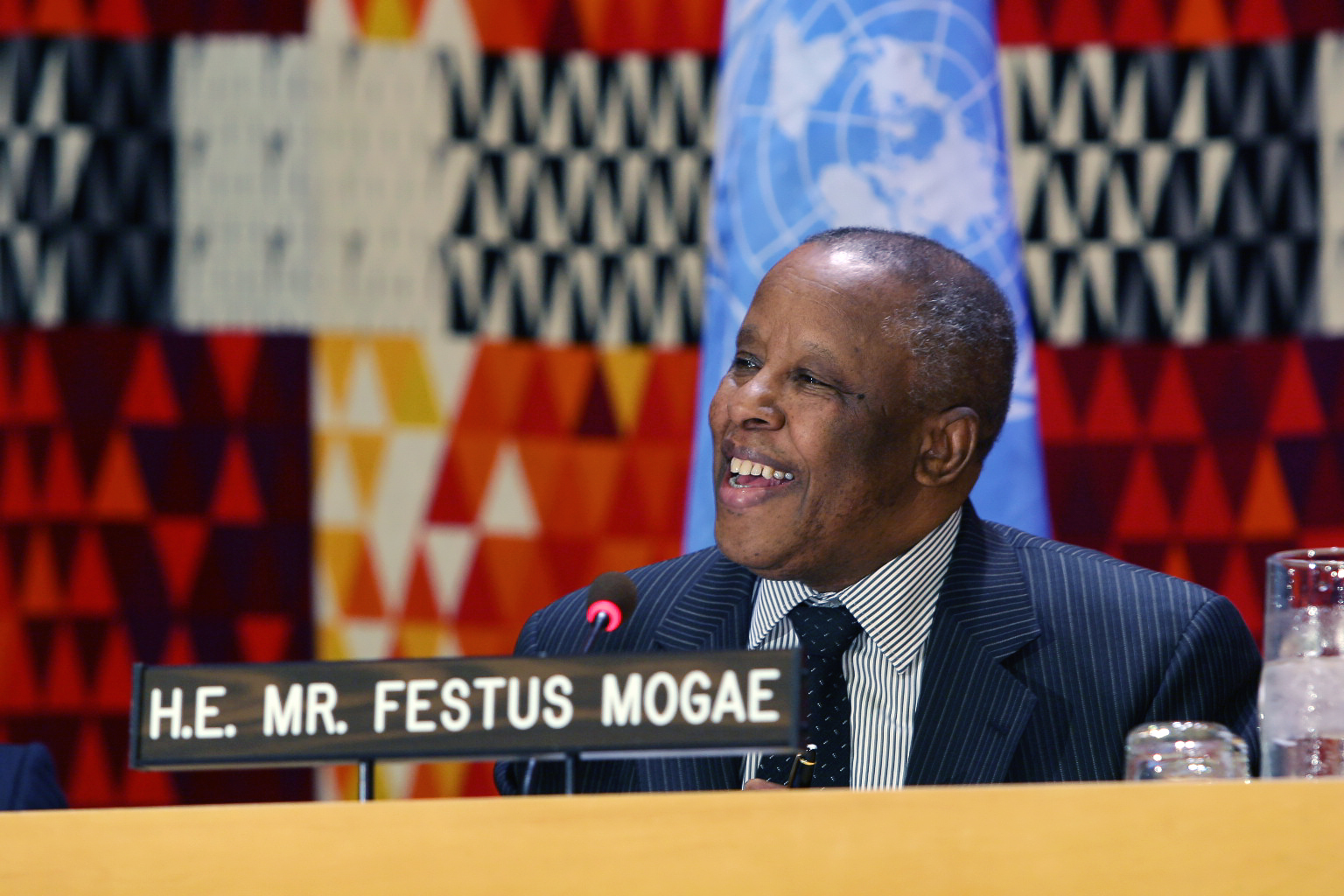
The greater part of the evening focused on the theme of Faith and the Human Spirit. The celebrated dancer and choreographer Arthur Mitchell, founder of the Dance Theatre of Harlem, introduced a stunningly talented Academy student delegate, Megan June, who performed a thrilling trio with members of Mitchell’s company.
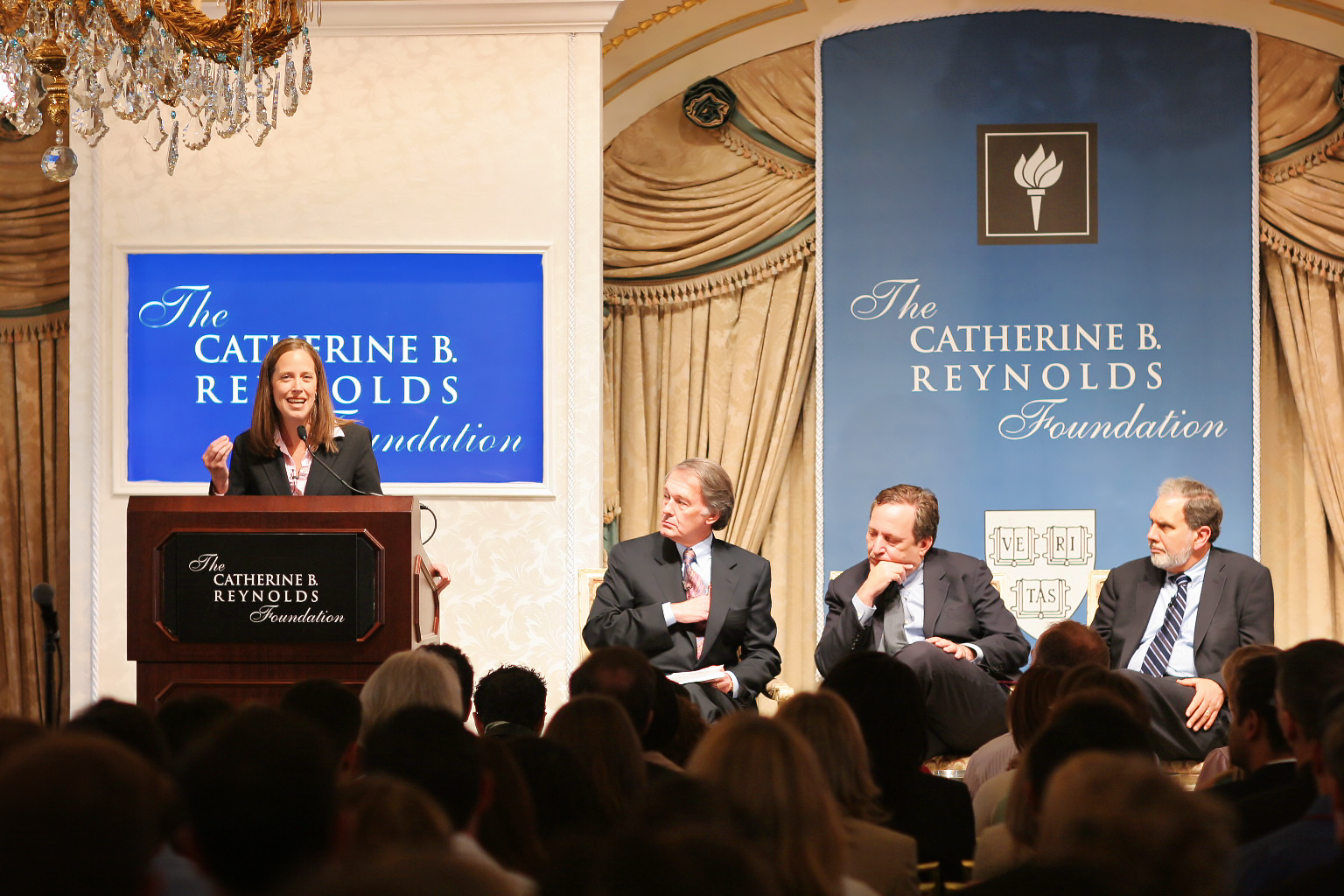
The Artistic Director of Jazz at Lincoln Center, Wynton Marsalis, spoke movingly of the power of music to give voice to the highest yearnings of the human spirit. The trumpet virtuoso proved his point with a powerfully swinging performance, accompanied by a rhythm section drawn from the Lincoln Center Jazz Orchestra. The internationally acclaimed soprano Kathleen Battle gave a spine-tingling a cappella reading of the traditional spiritual “Swing Low,” before joining Marsalis and his combo to explore the common ground of jazz and gospel music with a soul-stirring rendition of “This Little Light of Mine.”
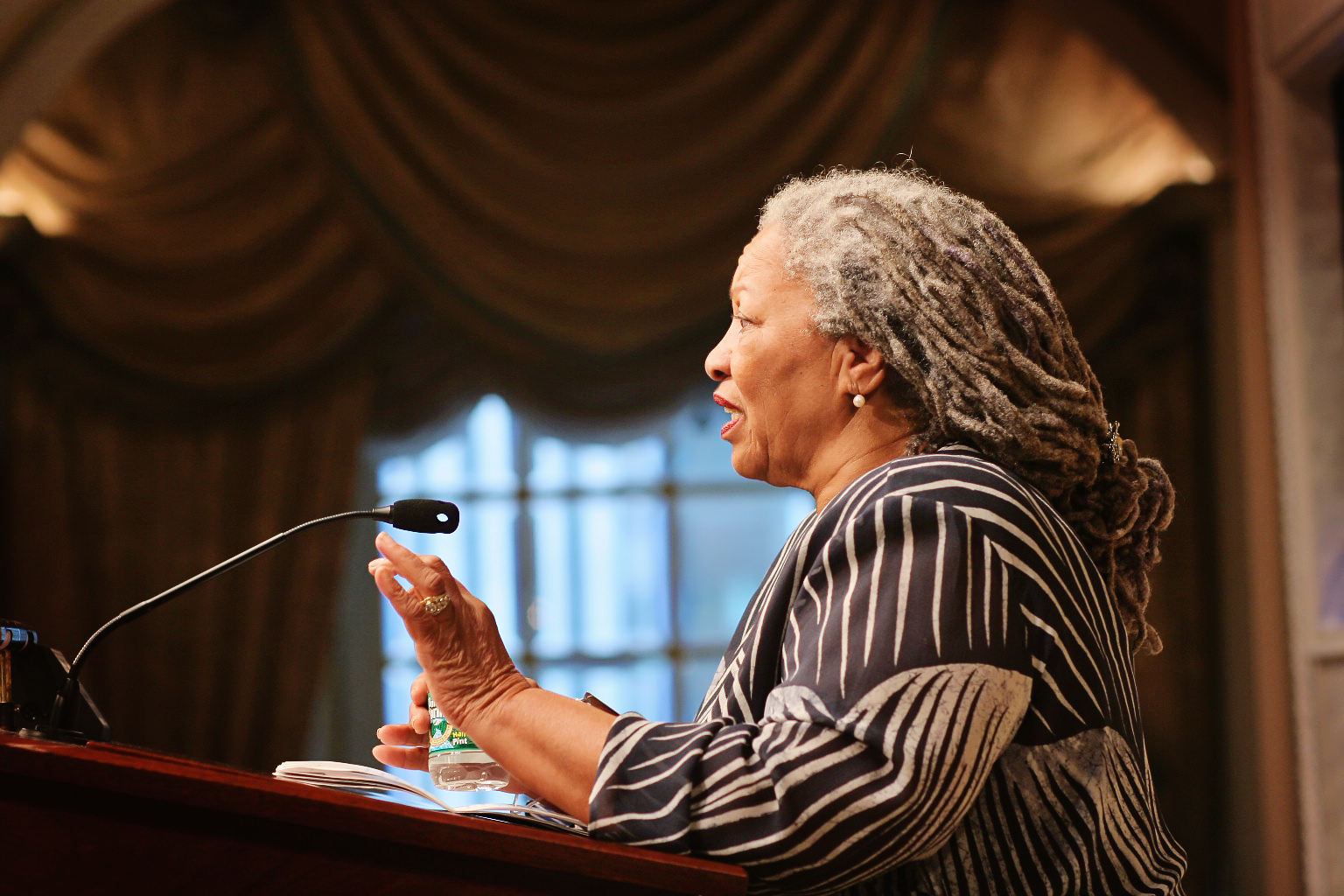
The next two speakers were both recipients of the Nobel Prize for Peace. The former President of Poland, Solidarity founder Lech Walesa, spoke passionately of the inspiration the late Pope John Paul II lent to the Polish people in their struggle for freedom. Elie Wiesel, a survivor of the Holocaust, internationally acclaimed author and human rights activist, brought many in the audience to tears with his eloquent testimony, affirming the power of the human spirit to survive and overcome even the most horrific of historic calamities.
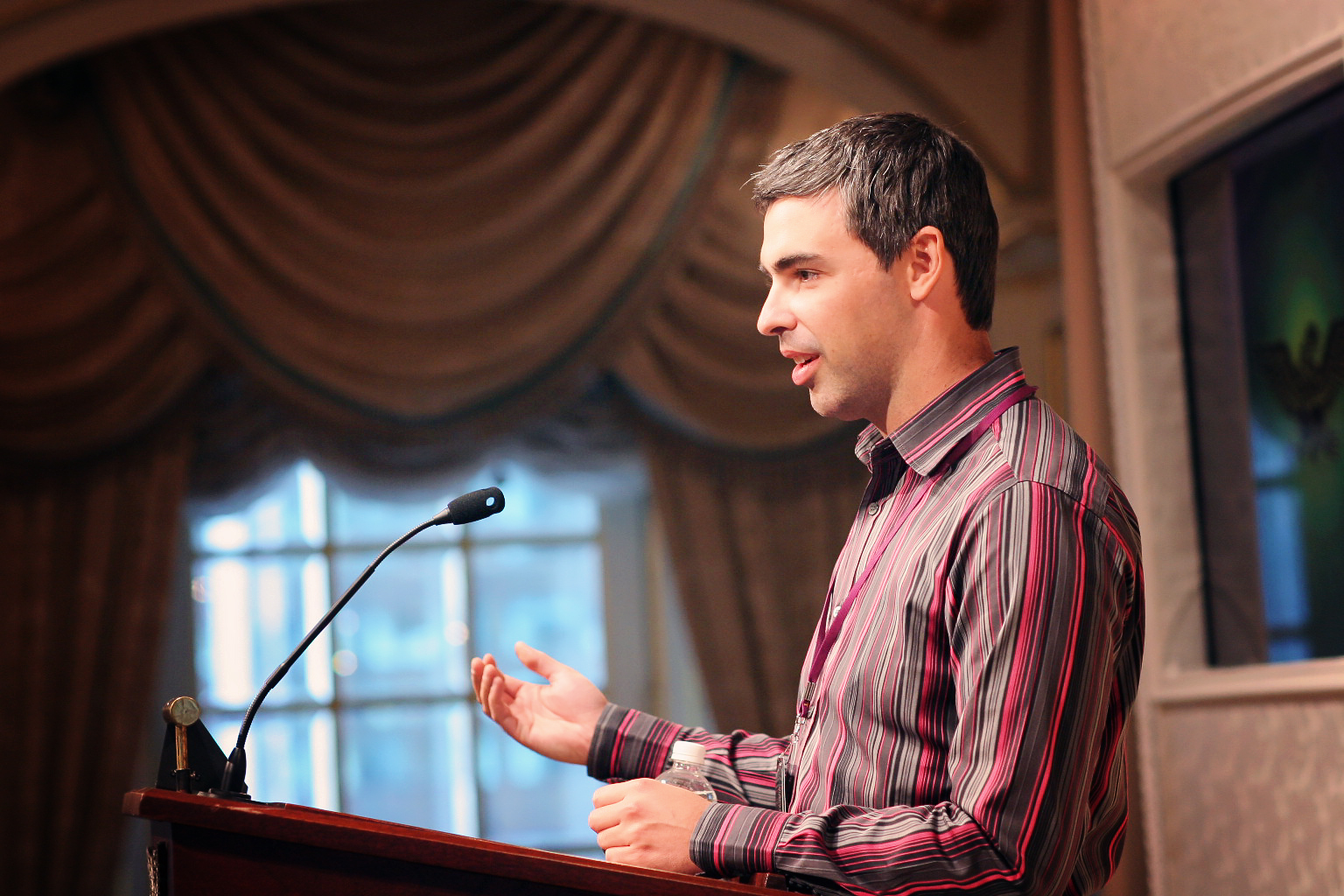
At the end of his address, Wiesel introduced the world’s greatest violinist, Itzhak Perlman, who was inducted into the Academy to thunderous applause. Perlman spoke briefly before introducing another gifted Academy student delegate, the 17-year-old violin prodigy Nicola Benedetti, who recently signed an unprecedented recording contract with Deutsche Grammophon. Her performance of the “Meditation” from Thaïs transported the audience and her fellow performers to a realm beyond words.
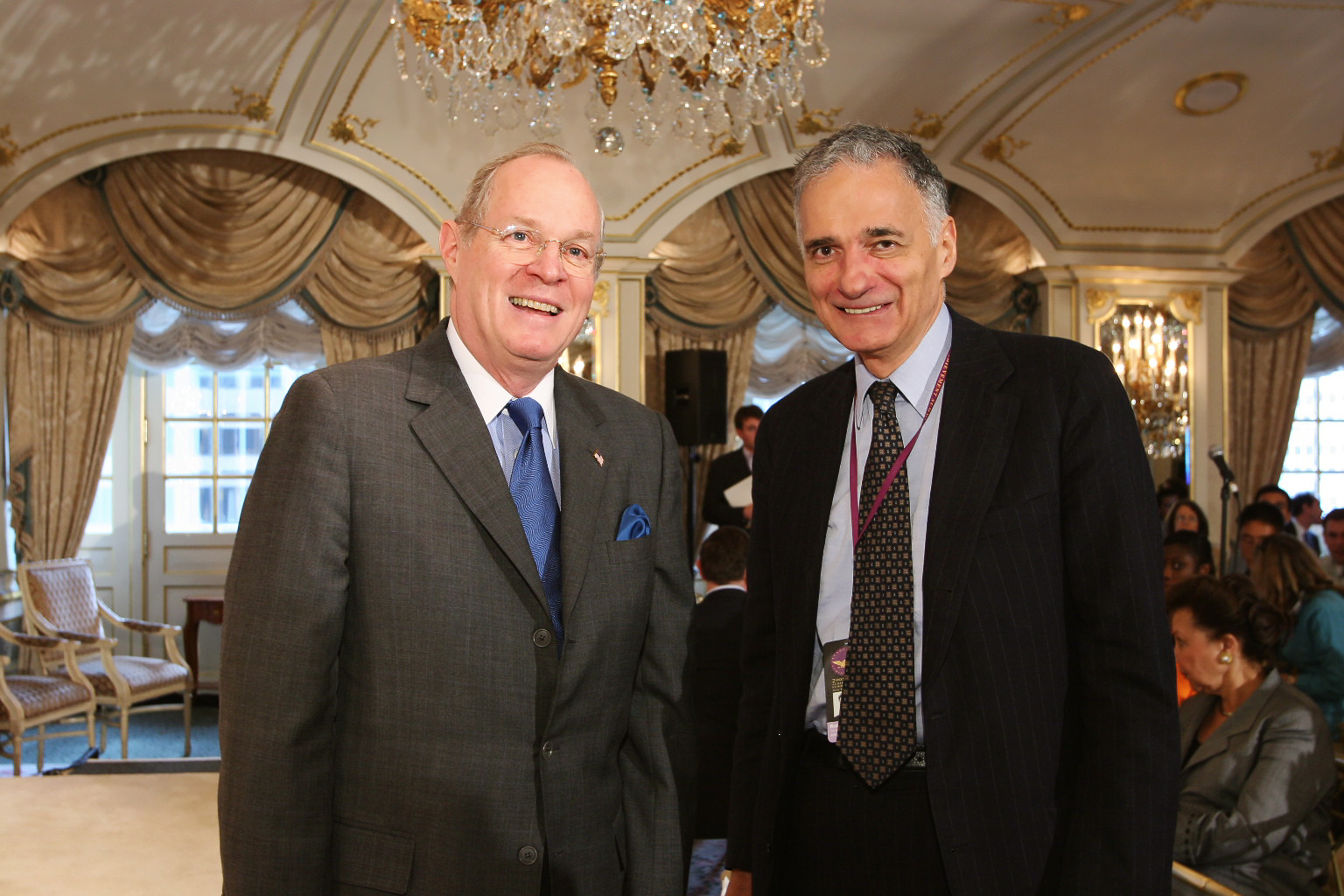
The Pulitzer Prize-winning novelist and poet N. Scott Momaday spoke of the meaning of faith from his own Native American perspective, and movingly read the opening paragraphs of the Declaration of Independence. As the last of those familiar, ever-new words reverberated in the darkened hall, singer James Ingram led a gospel choir in a rousing performance of “America the Beautiful,” bringing the evening to a profoundly stirring conclusion.
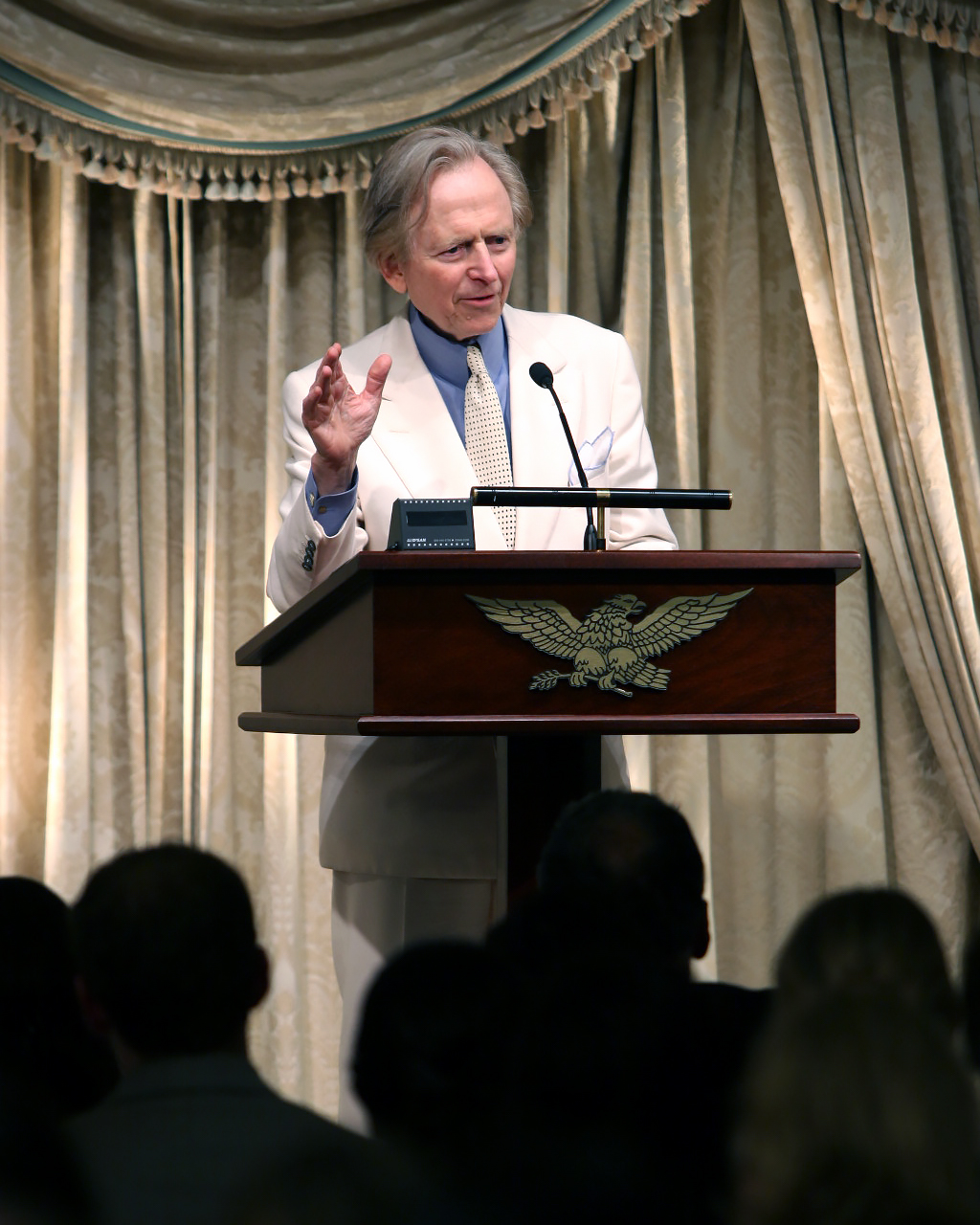
Friday morning took the Academy to the majestic halls of the United Nations for a unique symposium on the role of the global body in the world today. An authentic hero of our times, Paul Rusesabagina, whose courageous actions were recounted in the film Hotel Rwanda, spoke of the horrific genocide that took place in his native country and stressed the duty of the world community to prevent similar catastrophes in the future, making specific reference to the unfolding tragedy in Darfur, Sudan.
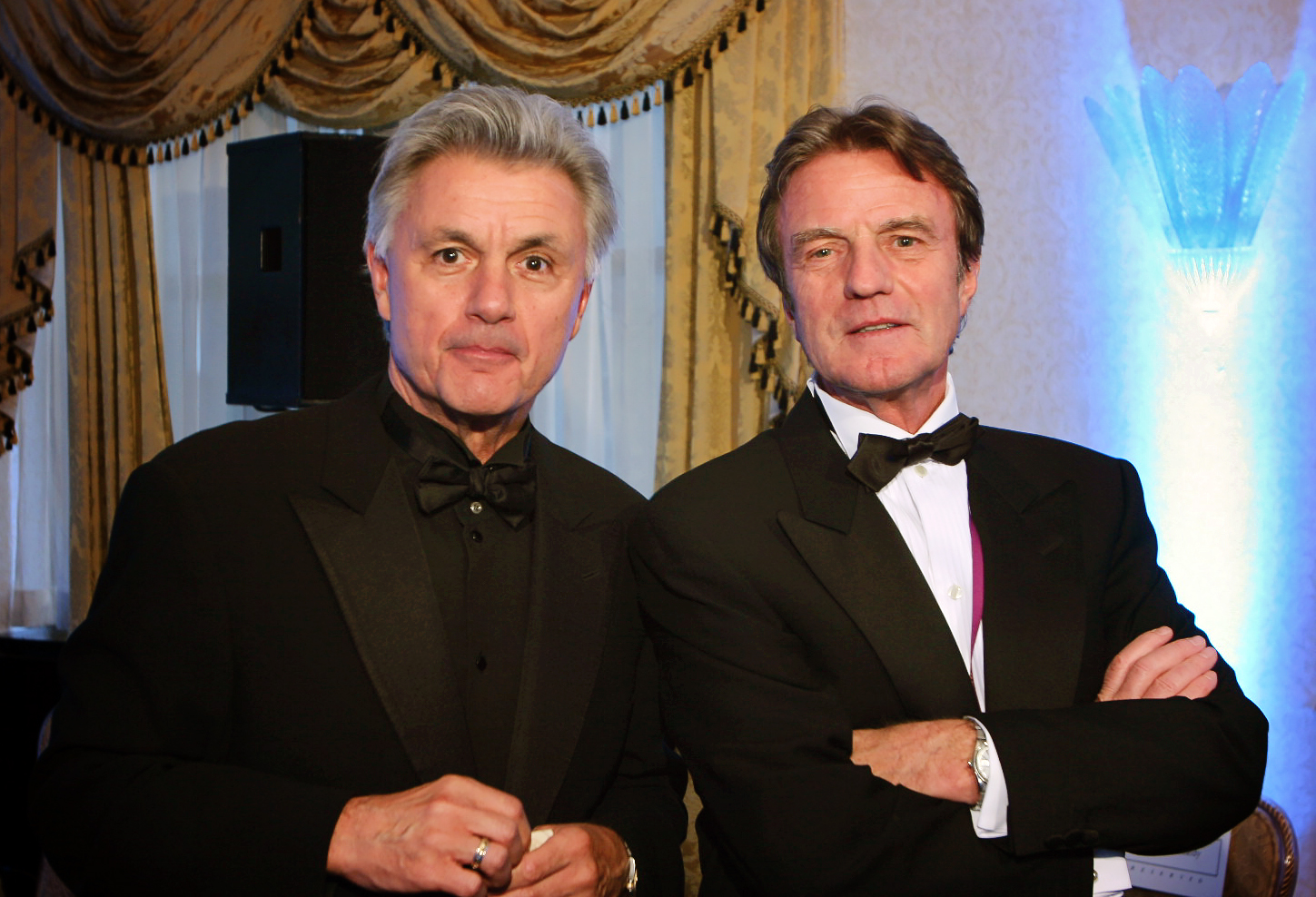
The Academy heard from another new member, the founder of Doctors Without Borders and Doctors of the World, Dr. Bernard Kouchner. His address was made all the more poignant by the recent death of Helene De Beir. A student delegate to the Academy’s 1999 International Achievement Summit in Budapest, she later joined Doctors Without Borders in Afghanistan, where she lost her life to a Taliban ambush while providing emergency medical aid to refugees. Dr. Kouchner asked that we honor her by doing our part to build the better world for which she sacrificed her life.
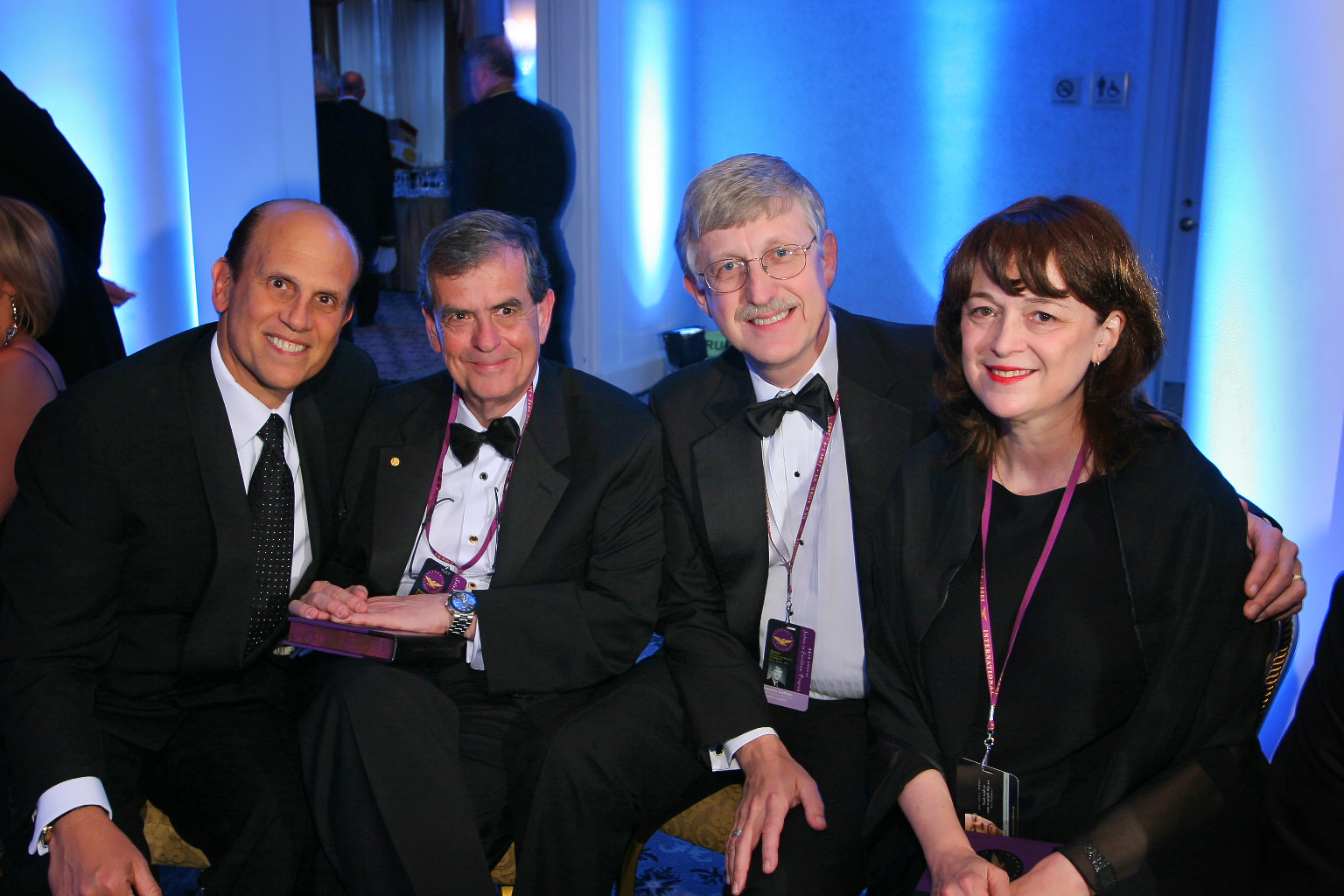
Another courageous soul who shared her experience with the Academy that morning was Dr. Shirin Ebadi. A fearless advocate of the rights of women and children in her native Iran, she has persisted in her cause despite the opposition of her country’s government. Her determination has won the admiration of the world and earned her the Nobel Prize for Peace.
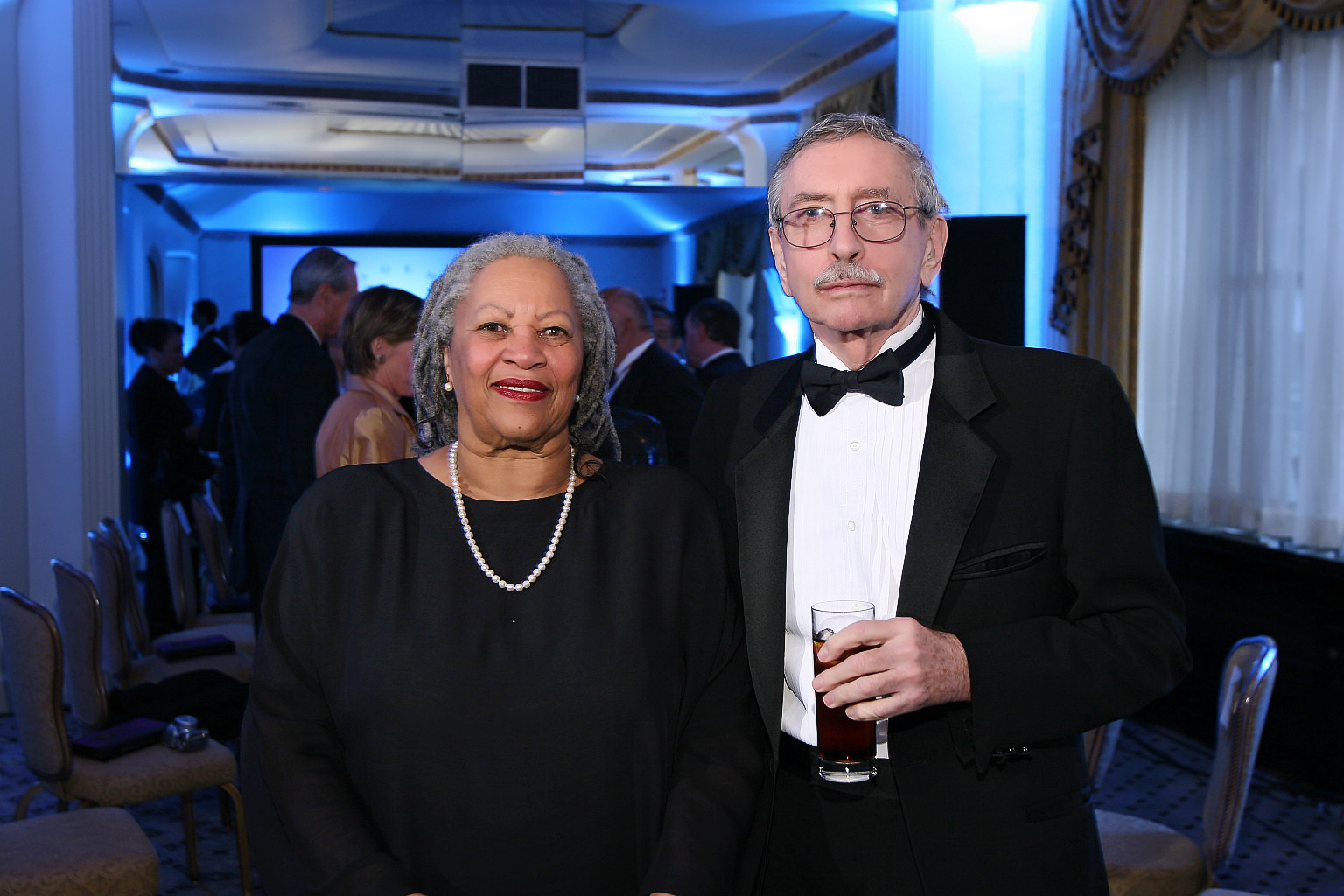
The United Nations’ Undersecretary General for Communications and Public Information, Shashi Tharoor, introduced an extraordinary panel on the Future of Sub-Saharan Africa. Participants included: the President of Botswana, His Excellency Festus Mogae; the President of Senegal, His Excellency Abdoulaye Wade; the UN’s Undersecretary General and Special Advisor for Africa, Ibrahim Gambari; and the Director of UNICEF, the Honorable Ann Veneman.
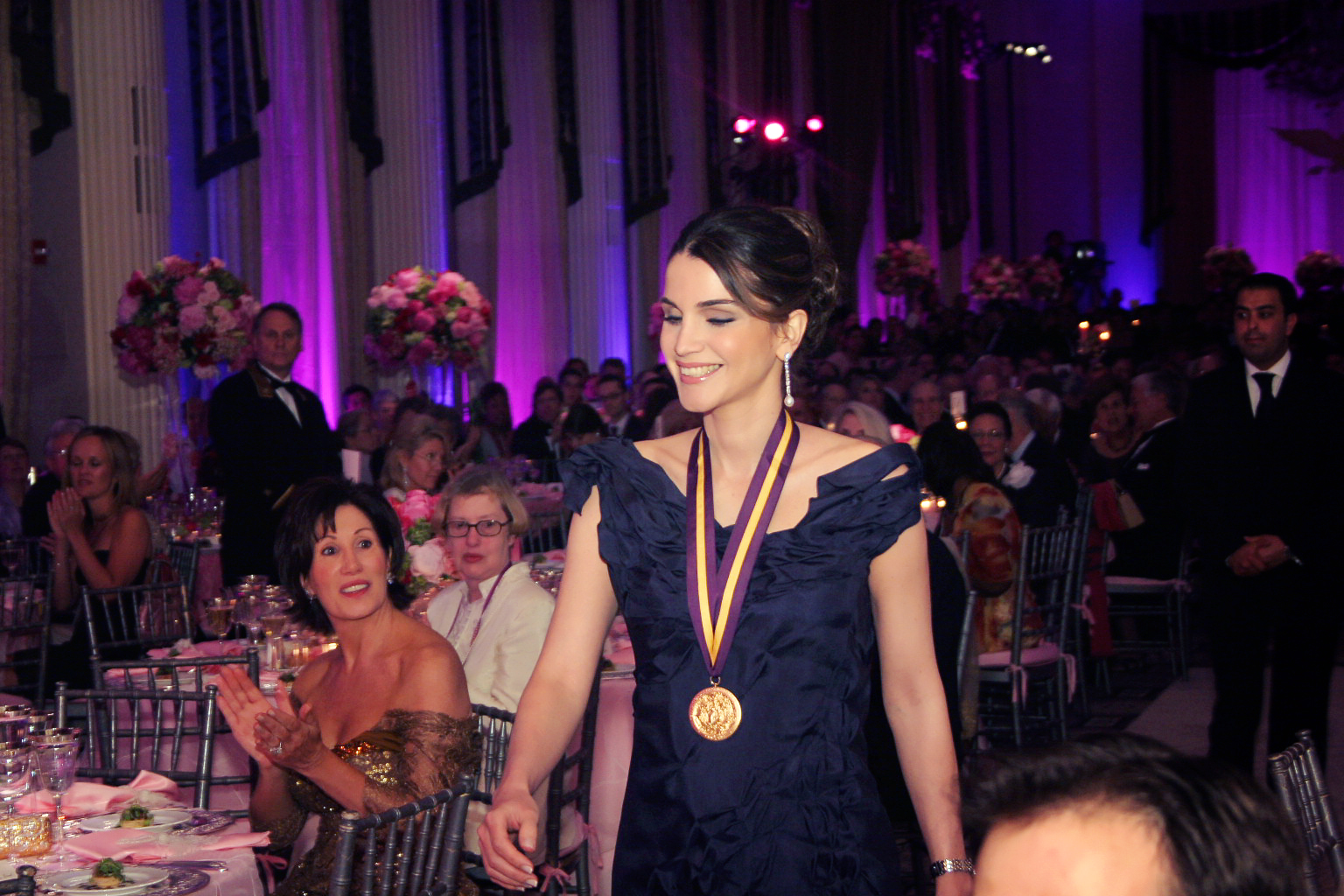
After their morning at the UN, Academy members, guests and student delegates returned to the St. Regis for a special midday session on the theme of Social Entrepreneurship. The Catherine B. Reynolds Foundation announced a grant of $20 million to fund the Catherine B. Reynolds Foundation Fellows for Social Entrepreneurship at Harvard and New York University. These fellowships will make it possible for over 100 students at each of these universities to acquire the knowledge and skills needed to create financially self-sustaining not-for-profit organizations that will address the most pressing challenges facing America and the world in the 21st century.
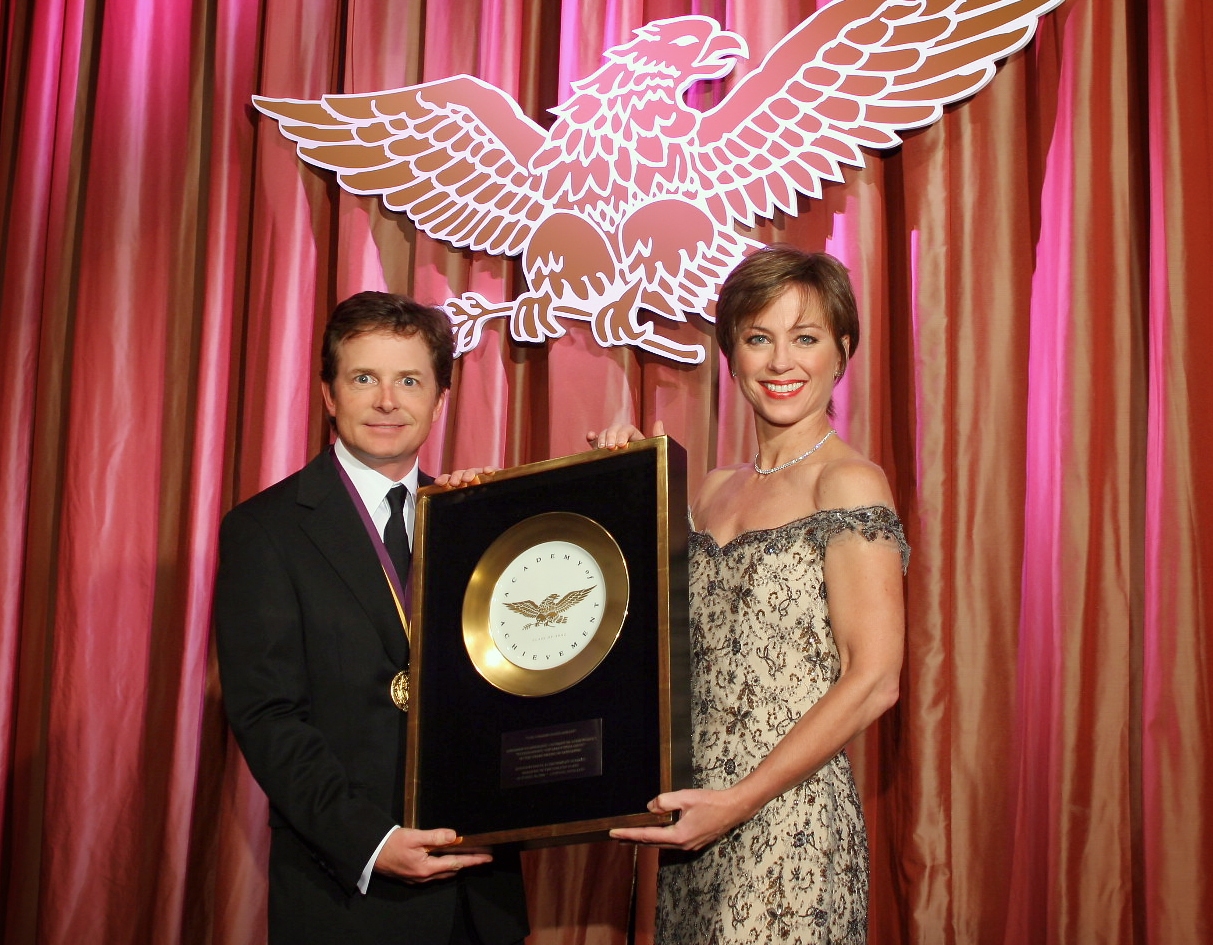
The President of New York University, John Sexton, and the President of Harvard, Lawrence Summers, were on hand to accept these gifts on behalf of their universities. The session’s other speakers included philanthropist Kenneth E. Behring and Wendy Kopp, the founder of Teach for America. Congressman Edward J. Markey, a special guest of the Academy, conducted an intriguing discussion with the Academy’s student delegates, in which they discussed their own social enterprises.
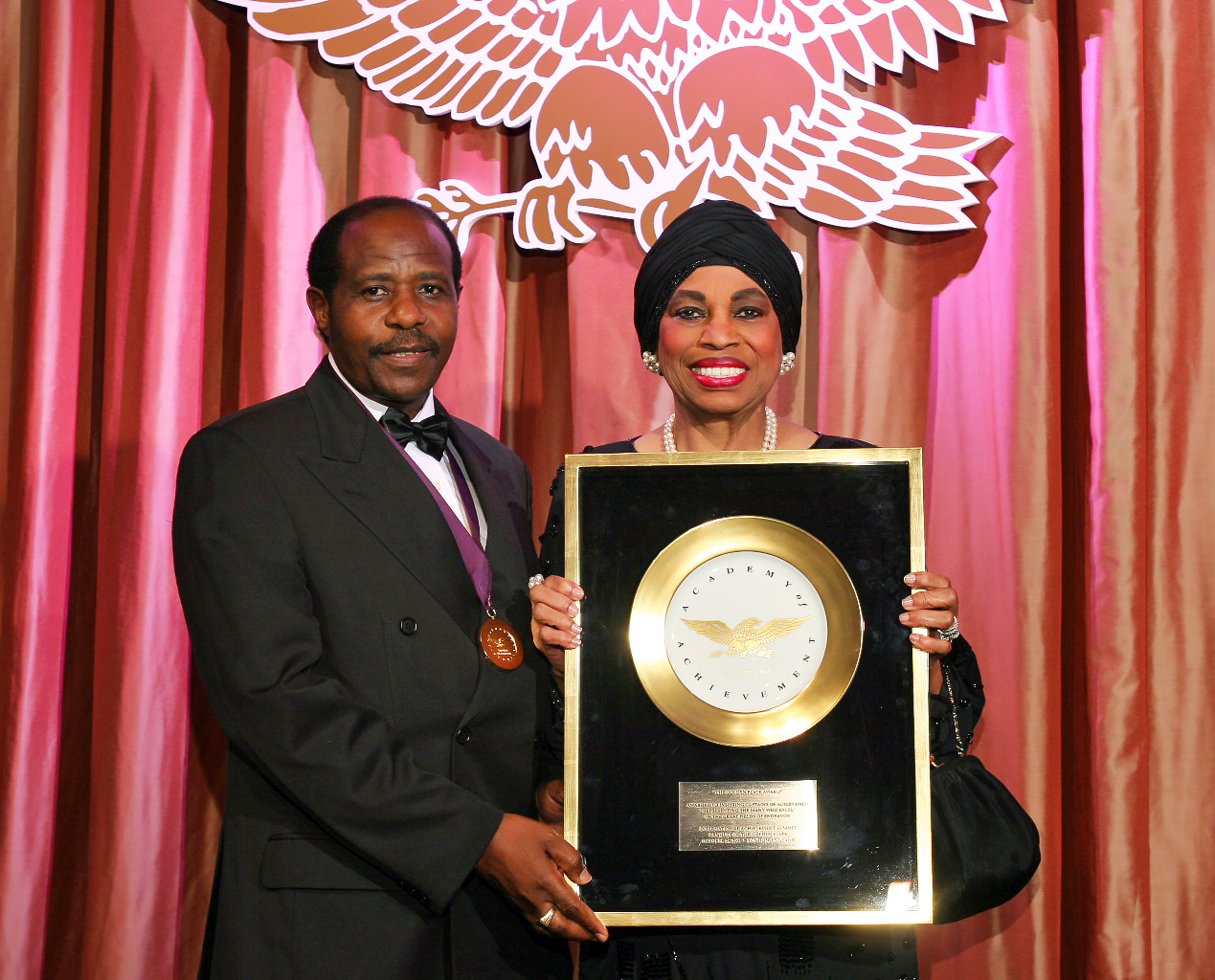
On Friday afternoon, the Academy heard from an incomparable array of speakers, including: novelist John Irving; Transportation Secretary Norman Y. Mineta; national security expert Graham Allison; Professor Toni Morrison, recipient of the Nobel Prize for Literature; Google co-founder Larry Page; the Attorney General of the United States, Alberto Gonzales; United States Supreme Court Justice Anthony Kennedy; consumer activist and presidential candidate Ralph Nader; the President of Washington’s John F. Kennedy Center for the Performing Arts, Michael Kaiser; and author Tom Wolfe. The Friday afternoon symposium concluded with addresses by two of the world’s most admired men: Archbishop Desmond Tutu, recipient of the Nobel Peace Prize; and the former Secretary of State, the Honorable Colin L. Powell.
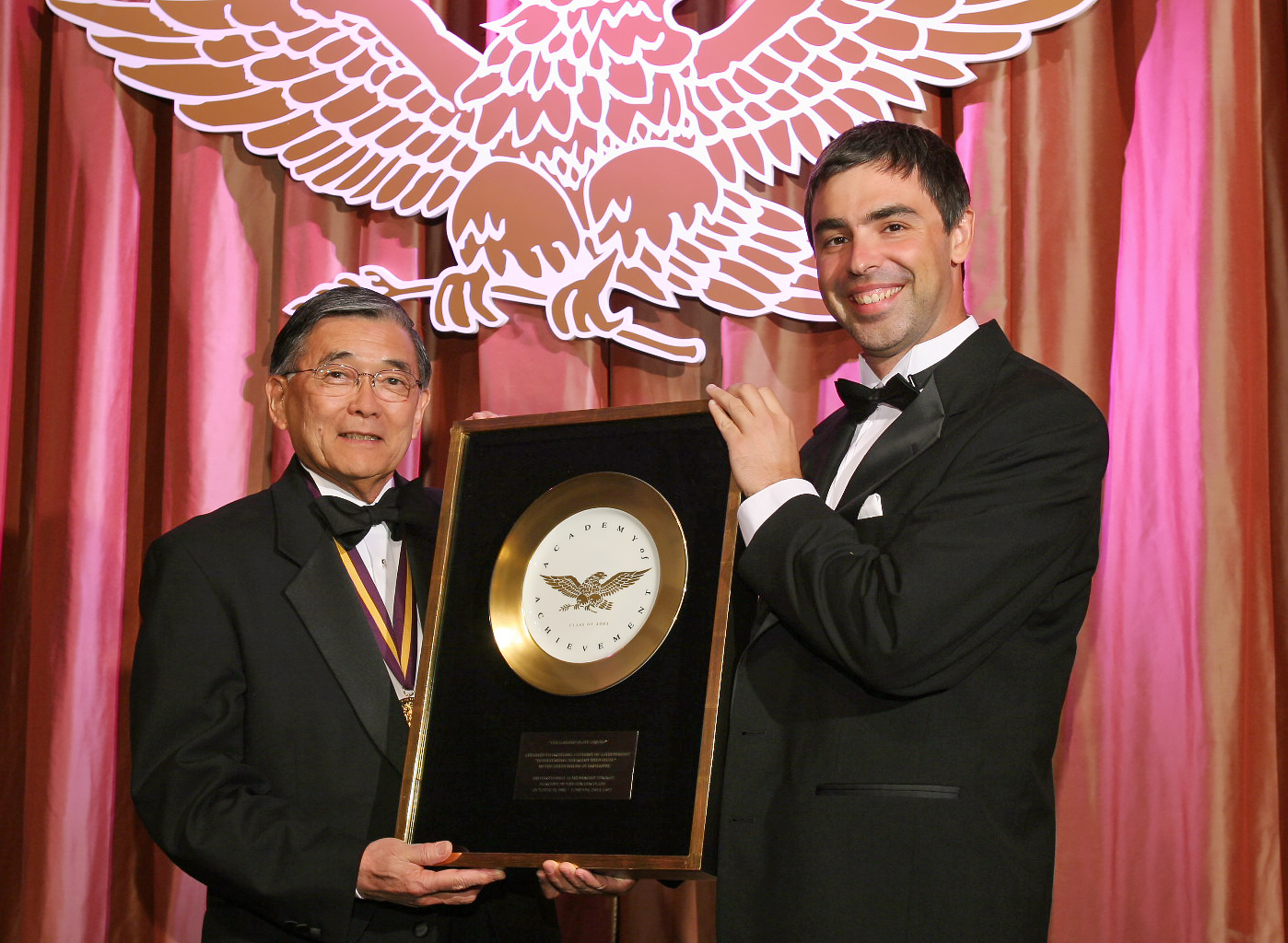
The 2005 International Achievement Summit culminated with the glittering Banquet of the Golden Plate, held in the art-deco splendor of the Starlight Ballroom at the famed Waldorf-Astoria Hotel. The members of the Class of 2005 were presented with the Golden Plate of the Academy of Achievement, and after a gracious address by Mayor Michael Bloomberg, the assembled guests, honorees and delegates relaxed for a sumptuous meal and an evening of classic American music.
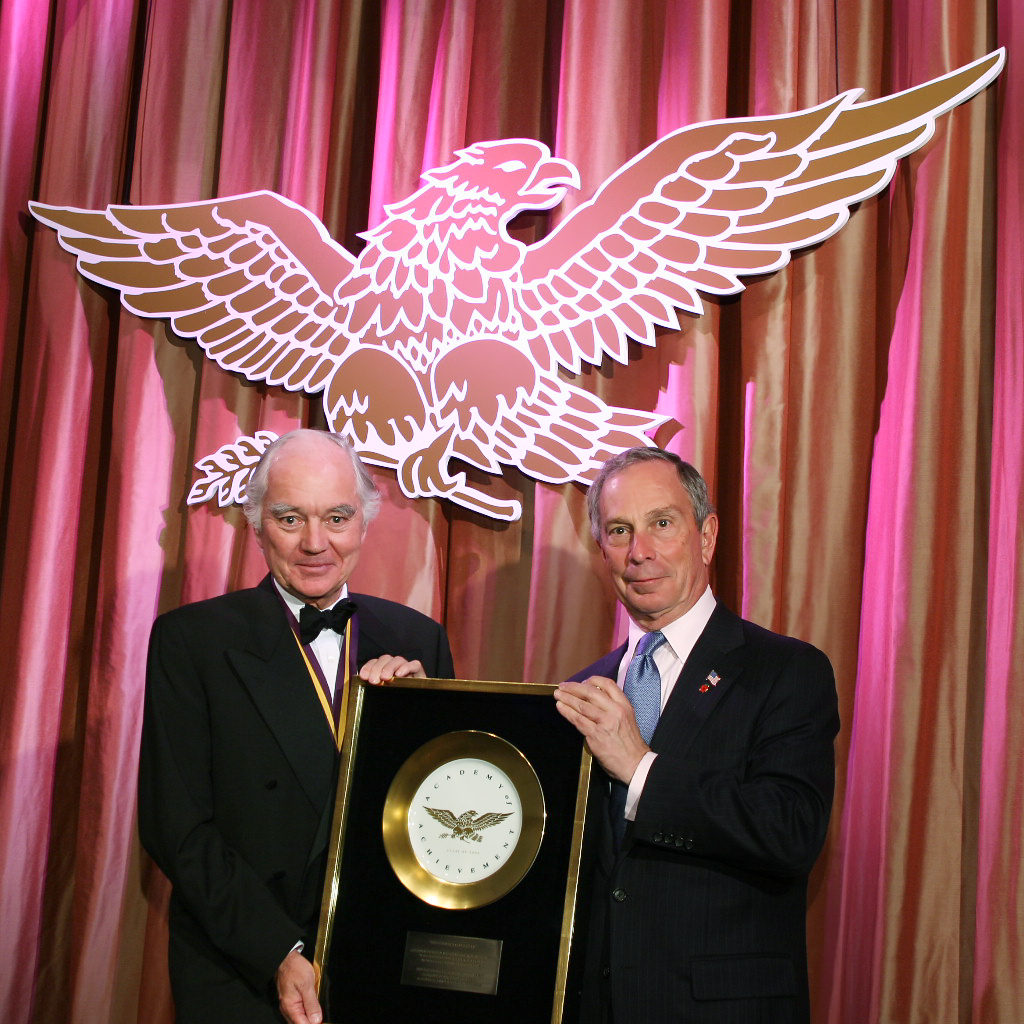
The King of the Blues, Academy member B.B. King, brought his sizzling band to the stage, and delegates from around the world were captivated by the infectious rhythms and irresistible humanity of his music. B.B. King was joined onstage for a final duet with a surprise guest, Academy member Wynonna Judd.
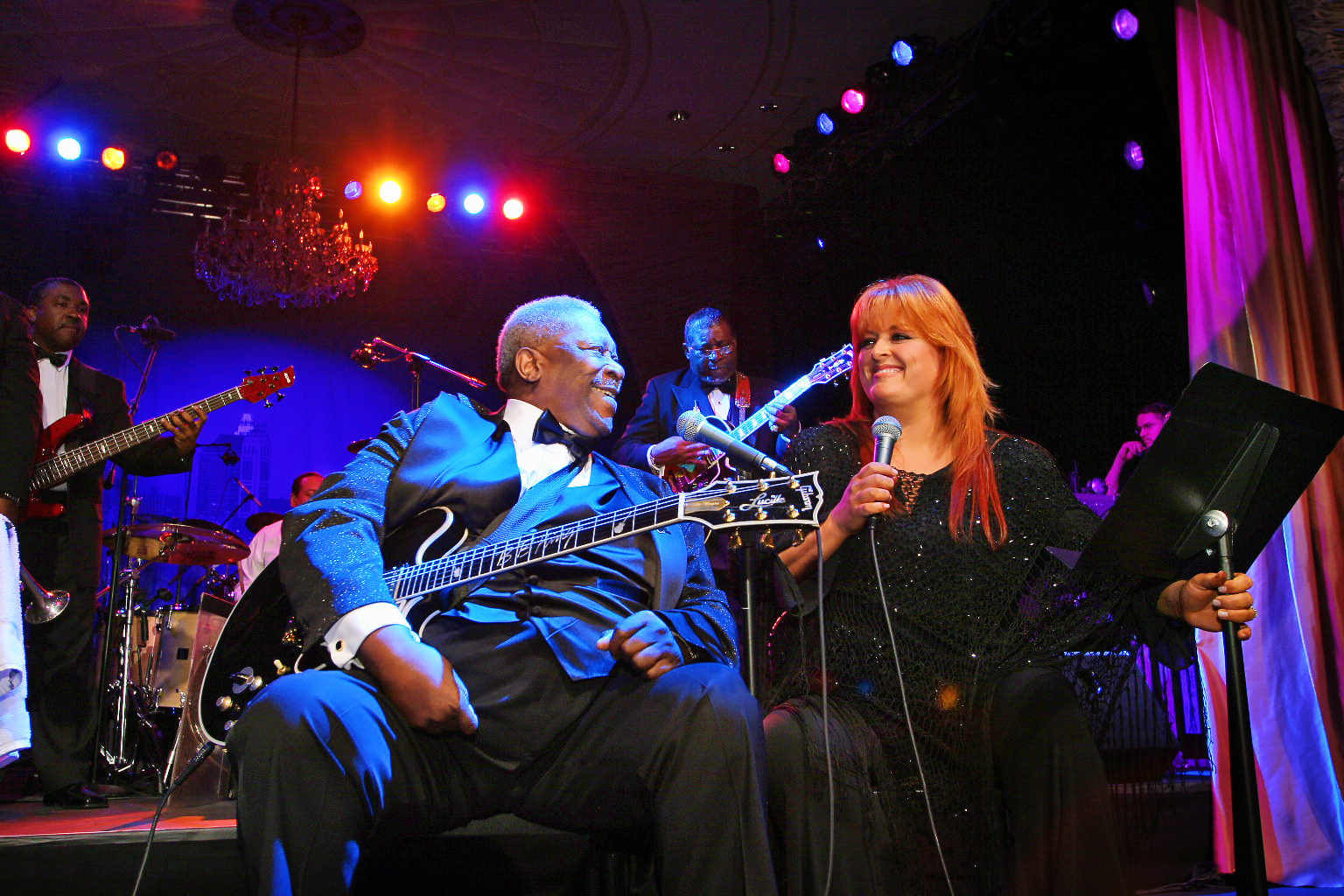
The celebration continued with a roof-raising set by a member of the Academy’s Class of 2005, rock and roll legend John Fogerty. Reaching into a song bag packed with his tunes from the 1960s to the present, Fogerty rocked the house with timeless hits like “Bad Moon Rising,” “Fortunate Son” and the baseball anthem “Centerfield,” before closing with the irresistible “Proud Mary (Rolling on the River).” Heads of state, Nobel laureates, distinguished authors, scientists, captains of industry and legends of stage and screen joined the international student delegates on the dance floor, bringing the 2005 Banquet of the Golden Plate to a joyous conclusion.
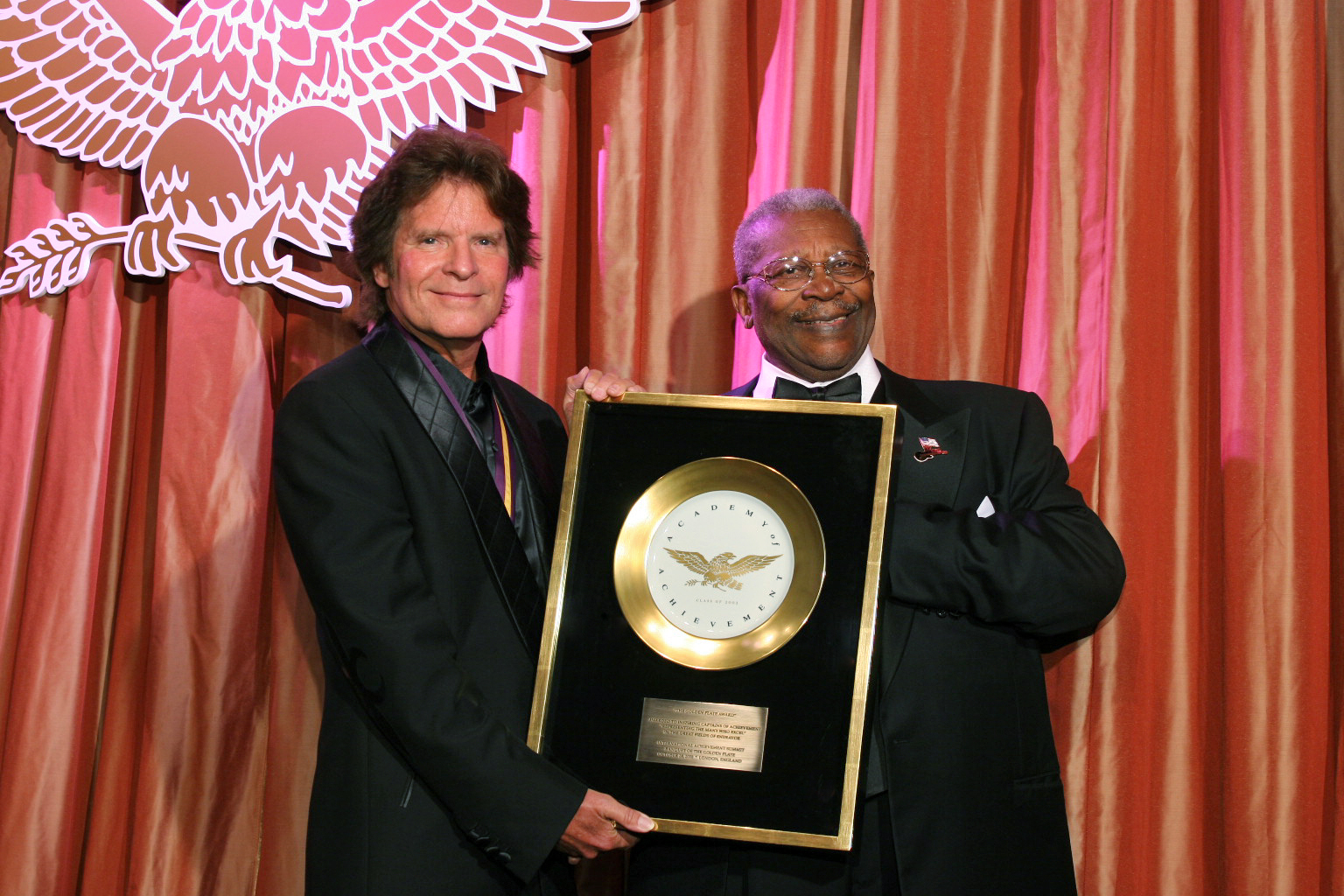
In a city that only a few years ago was traumatized by a brutal act of hatred, talented students from around the world had a chance to see and hear all that human beings can accomplish when they set aside their differences and pursue their highest ideals. By taking to heart the example of the Academy’s distinguished honorees, the student delegates may learn to fulfill their own potential for leadership and build a better world for all.


The heartfelt enthusiasm and genuine, unaffected gratitude of the student delegates are among the most rewarding aspects of the International Achievement Summit. We invite you to share in their close encounters with Academy members and fellow delegates, as described in their own words.
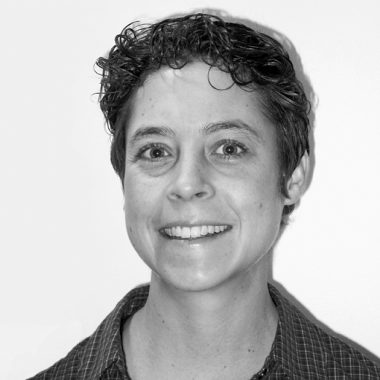
Maria J. Stephan
Truman Scholar and Fulbright Scholar, Fletcher School of Law and Diplomacy, Tufts University
Dear Mrs. Reynolds,
I just touched back down in Boston and wanted to write you right away. While waiting to board the plane at LaGuardia a few hours ago I was surrounded by a group of totally sleep-deprived “achievers” who nevertheless could not stop churning out memories of the past three days. We swapped stories about meeting with a queen, talking politics with a Secretary of State, and dancing alongside our favorite morning news anchor. I wanted to first thank you, Mrs. Reynolds, for treating me and around 250 other scientists, artists, theologians, soldiers, scholars, diplomats and future Nobel Prize winners to an incredible three days in New York City. It was an ineffable experience.
The International Achievement Summit was like an agora from Greek times — a most unique gathering place where those at the top of their respective fields shared and interacted with a group of aspiring protégés. There were a number of themes and messages that especially resonated with me these past three days in New York. Let me share a few of those with you.
Thomas Friedman said this morning that although pessimists are often correct in their analyses, only optimists have ever changed the world for the better. Optimism however is not enough to improve humanity. Change happens when passionate people take risks and embrace failure. This was Senator Tom Daschle’s important message to us. Failure is inevitable — it is how we respond to failure that determines the strength of our character. Gutsy actress Sally Field reminded us that there is no substitute for hard work in life. Achievement is not born of short cuts. On a side note, how amazing it was when Miss Field introduced me to Scott Berg during dinner at the Met by describing to Mr. Berg my dissertation research on popular nonviolence resistance movements. Sally Field will probably not remember how she so brilliantly expressed the essence of my research during that introduction, calling it “war without violence,” but that introduction meant quite a lot to me.
As someone aspiring to a career in international relations, I was honored to meet General Colin Powell. I asked him a pretty tough question at the end of his remarks about the impact of Abu Ghraib, Guantanamo and the torture scandal on our democracy and the U.S. image abroad. I asked General Powell how, concretely, the United States could balance its role as indispensable world leader with that of humble servant of humanity. The former Secretary of State’s response emphasized the importance of humility in the conduct of foreign policy, which I believe has been totally ignored by the current administration. When I spoke with George Tenet later that day, I told him that I hope our government will not try to steal the thunder (and legitimacy) away from the “people power” movements that are taking place in other parts of the world — including Iran and Central Asia. Humility and doing good for other peoples, I believe, is the surest safeguard of national security and international peace. Athens lost its greatness and began to resemble Sparta when its leaders became infatuated with power and hubris.
My respect for Ralph Nader deepened tremendously after listening to him at the Summit. Whether or not one agrees with Mr. Nader’s political analyses and policy prescriptions, it cannot be denied that he is a man driven by principle and a true lover of country and democracy. Mr. Nader, who I had the pleasure of sitting next to at dinner on Thursday evening, impressed me with his rejection of abstractions, slogans and political jingoism. He has a long-term vision for this country that is based on empowering citizens and making them, rather than corporations, the center of political life. He told me at dinner, Mrs. Reynolds, that he respects you very much because you do not stifle alternative perspectives at the Academy. Rather, you have used the Summit as a forum that encourages a free exchange of ideas. I too appreciated this very much.
And how great it was to hear Desmond Tutu speak! Archbishop Tutu is truly a man of God and a godly man — so full of life, so full of hope. Both Archbishop Tutu and Elie Wiesel, another great humanist and visionary, have seen the absolute worst side of humanity. At the same time both refuse to accept that the potential for evil in human beings is greater than the potential for great goodness. Truly great leaders, I learned from these two Nobel laureates along with Rwandan hero Paul Rusesabagina, are those whose love for humanity transcends religious, cultural, and national borders. The greatest leaders are humanists before they are patriots.
I was blown away by the musical performances of Wynton Marsalis and the singing of Kathleen Battle at Lincoln Center. Wynton Marsalis even spoke in jazz! And witnessing the terrific talents of fellow student delegates, in music and dance, was truly unforgettable. On that night of great cultural expression, another one of my personal heroes, Lech Walesa, told about how people power and the Pope helped bring down a system of oppression in Poland and the rest of Eastern Europe. President Walesa reminded me why I am so captivated by the power of the human spirit and human agency in the conduct of international relations. As I complete my dissertation on the role of strategy in nonviolent resistance movements at the Fletcher School, I have the words of Walesa and Archbishop Tutu to carry me across the finish line.
It is not possible to capture all of the nuggets of wisdom that I took away from the past three days in New York. But please know, Mrs. Reynolds, these gems will remain with me forever. Thank you so much for providing me the opportunity to connect with individuals whose passion, risk-taking, and vision have made the world a better place. I have much work to do to live up to their example. As Representative Ed Markey reminded me on Friday afternoon, “To whom much has been given, much is expected in return.” The Achievement Summit has inspired me to work harder in order to give back more to humanity. Thank you for your vision and generosity.
Sincerely,
Maria J. Stephan
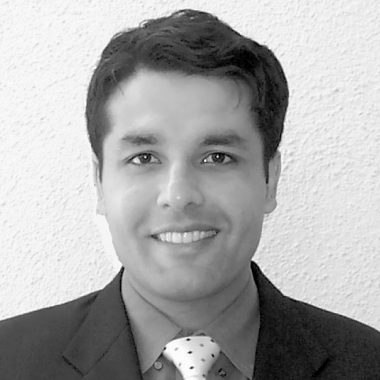
Arpit Malaviya
Soros Fellow and National Science Foundation Fellow, Stanford University
Dear Mrs. Reynolds,
Words cannot begin to describe the gratitude I feel towards you and the Academy of Achievement for giving me what truly has been an opportunity of a lifetime. Nevertheless, I will attempt to convey my appreciation and the impact that the Summit has had on me.
To begin with, I sincerely thank you for inviting me and sponsoring me to attend the International Achievement Summit in New York this year. Without your generosity and kindness, I could never have imagined being surrounded by luminaries from all facets of life. I am still trying to grasp the magnitude of the experience by reliving the moments through the photographs I captured during the course of three days.
Even though I had reviewed the highlights from the 2004 Summit on the Academy of Achievement web site, I never envisioned sitting next to Ralph Nader during lunch to discuss politics, meeting Paul Rusesabagina after dinner and listening to Wynton Marsalis at Lincoln Center in the span of a day. From listening to President Clinton before dinner on the first night at the Temple of Dendur to the final breakfast with Tom Friedman, I was amazed by the Academy’s ability to gather some of the most respected human beings of our time in one place so that we students would be able to see, hear and interact with them. I was also struck by the humility and approachability of people like General Colin Powell, Arbishop Tutu, Kenneth Behring and Justice Kennedy, to name a few.
I could pen endlessly about the sense of awe I experienced being in the presence of such incredible people and fellow students. Instead, I wish to express the impact that the Summit has had on my outlook and future plans. At the United Nations, I had the opportunity to pose a question to the President of Senegal and later meet the President of Botswana.
I asked what I, as an electrical engineering student in America, could do to improve the plight of students in their countries, and the President of Botswana wondered if I could set up a program to train students in Botswana.
I was moved by the simplicity and sincerity of his request.
Since returning from New York, I have been in contact with my alma mater, the University of California at Santa Barbara, and am in the process of establishing a research study program that would enable 20 students from Botswana to conduct scientific research at the university next summer. I envision expanding the program in subsequent years to allow more students from different African countries to spend their summer at research universities in the United States. I sincerely believe that this program would not only give the students an opportunity to partake in the latest research in their field, but also give them much-needed hope and encouragement as they pursue higher education.
Your generosity enabled me to attend the 2005 Summit and your vision has given me something priceless: a sense of purpose in my quest to make a difference in other people’s lives. I thank you and the Academy and look forward to having the opportunity to express my gratitude in person.
Sincerely,
Arpit Malaviya
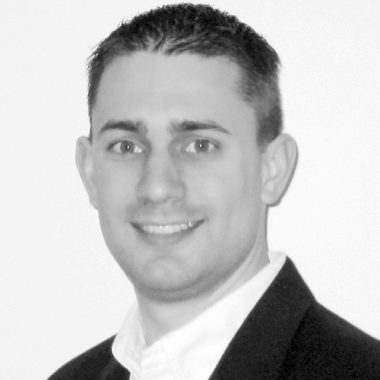
Mike Baird
Margery Kraus Scholar, Kellogg School of Management, Northwestern University
Dear Mrs. Reynolds,
As I sit here trying to digest the amazing events of the past four days, I find it difficult to express the appreciation and gratitude I have for your actions and generosity on my behalf. Simply stated, the Achievement Summit was one of the supreme highlights of my life and will undoubtedly remain a lasting inspiration for years to come.
On Thursday morning, I was surprised to find that an unassuming member of our breakfast table was the President of Botswana. Moreover, I was shocked when he took the time to come over and introduce himself to me and welcome me to the conference. As I reflected on this improbable experience and others, I strongly believe that the Summit was a resounding success in both honoring those who have achieved and inspiring a new generation of leaders.
I was deeply moved by Dr. Benjamin Carson’s remarks on science and faith, and on using our God-given talents to improve the world around us. It was touching to see such an accomplished man speak with humility and quiet fortitude of his gratitude to God and others. More importantly, it was a striking reminder to develop and magnify my own talents and skill with the ultimate goal of serving the world around me.
The intriguing discussion with George Tenet and later General Colin Powell shed some light on the difficulties of leadership. Their stories about our current national security issues and insights into the extraordinary efforts that went into the war in Iraq left me appreciative of the burden of leadership and the need for integrity in decision making. Further, their experience gave poignant insights into the challenges and failures that even the best leaders frequently face.
Finally, the remarks of the Honorable Anthony Kennedy and Norman Mineta strengthened my resolve to enter public service. Their inspirational remarks and examples of prudence, non-partisanship and graciousness provided an encouraging alternative to the unnecessary partisan inefficiencies that tarnish the current political environment. Surely the world would be a better place with more devoted public servants like them.
In summary, the Achievement Summit was one of the most enriching, intellectually stimulating and motivating events of my life. I am deeply indebted to you, the other hosts and patrons, and the Academy for this tremendous opportunity. I assure you that I will do my best to remain worthy of the honor that was given me.
Sincerely,
Mike Baird
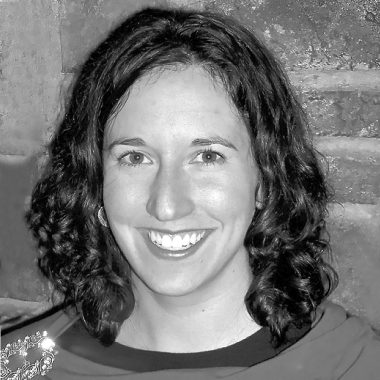
Ryann Elizabeth Manning
John F. Kennedy School of Government, Harvard University
Dear Mrs. Reynolds,
A simple “thank you” seems utterly inadequate to express my gratitude for the opportunity to attend the 2005 International Achievement Summit. My head is still swimming from this truly incomparable experience, and I am deeply grateful for your sponsorship of the Summit, your invitations for me to attend, and your ongoing support of young scholars and leaders.
Family and friends keep asking me to describe my favorite moments from the Summit, and I am always at a loss to answer. My head immediately fills with a million scenes: I stood before the Temple of Dendur at the Metropolitan Museum of Art, stunned into silence by its majestic beauty. I heard Attorney General Alberto Gonzales and Supreme Court Justice Anthony Kennedy speak with candor about some of the most vital legal issues of our day. I watched the dancers of the Dance Theatre of Harlem soar against the breathtaking New York City backdrop, followed by the soaring notes of the Wynton Marsalis trio.
I had the opportunity to speak directly with Paul Rusesabagina, the hero of Hotel Rwanda, and to convey my profound respect for his humanity and courage in one of humanity’s darkest moments.
Ultimately, amidst all of these incredible moments, I usually highlight two. The first is the morning we spent at the United Nations, moved and challenged by heartfelt speeches on some of the most pressing challenges facing the international community, including women’s rights and the future of sub-Saharan Africa. The second is the moment at the Banquet of the Golden Plate when I found myself dancing to the great B.B. King alongside Toni Morrison, whose writings have moved and inspired me for years, President Festus Mogae, whose leadership of Botswana has been a model for the continent, and Archbishop Desmond Tutu, whose leadership in South Africa and elsewhere has earned him a spot among the world’s most revered figures.
In short, the Summit was a parade of incredible moments, which together convinced my fellow student delegates and me that great achievers are, first and foremost, ordinary human beings. This, in turn, inspired us to believe that we too can achieve great things — that we too can make a difference in the world. For this lesson in inspiration, and for the many memories that will stay with me for the rest of my life, I say a humble and inadequate “thank you.”
Sincerely,
Ryann Elizabeth Manning
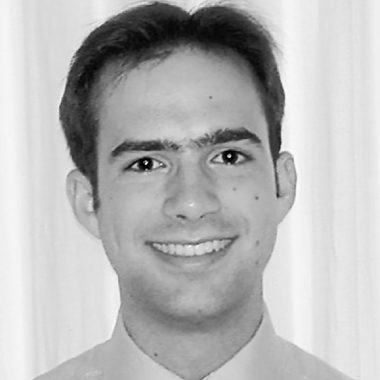
Mark Abrahamson
Rhodes Scholar, Wadham College, University of Oxford
Dear Mrs. Reynolds,
It has now been a few weeks since the International Achievement Summit and I have been meaning to write to thank you for affording me the extraordinary opportunity to attend. In the interim however, I was rather oppressed by what I hope will be the last set of exams I will ever need to write.
In fact, the lifestyle contrast between those days in New York and the full-time revision that followed made the surrealist quality of the Summit even more pronounced. Looking back on the Summit now it not only seems rather unreal to me — some might describe it as a dream — but I also have difficulty trying to adequately convey the experience to my friends and colleagues. How can one possibly explain to others that whilst standing in the breakfast queue one was sandwiched between the leader of the human genome project and the creator of Star Wars?
The International Achievement Summit, though a unique event, surely leaves a multitude of impressions on those who attend. Perhaps it presents the opportunity to meet a hero or inspirational character (I was thrilled to exchange a few words with Desmond Tutu on the final day); perhaps it allows for an experience of the sublime (Nicola Benedetti’s rendition of Meditation or Toni Morrison’s delicate description of the resonance between seemingly unrelated things); perhaps it stirs provocative debate (the Symposium on Science and Religion was especially interesting in this regard).
For my part, I remember leaving New York with a renewed sense of moral obligation to use my privilege for good. Certainly the most moving testimonies of speakers at the Summit were those whose achievements had tangibly improved the lives of others. For each of them, there are thousands of others who have also given their lives to service — perhaps less spectacularly, but still meaningfully — and I was once again made aware at the Summit that the world is greatly in debt to those people. I simultaneously realized that I will one day judge the fulfillment of my own life by the extent to which I have contributed positively to the community.
In the rush of life, one seldom has the opportunity to pause and reflect on one’s choices with a sense of perspective. It is possibly ironic that such reflection should be brought about by some of the busiest days I have experienced to date, but in addition to all the impressive speakers, events and generous hospitality, the Summit reminded me in a very personal way of the person that I aspire to be.
As you said to me at the Summit, I will continue to remember parts of the Summit as time passes and already I have had a number of “re-awakenings.” Thank you for giving me the chance to participate in this remarkable event — the memories and the messages will live with me for many years.
With very best wishes,
Mark Abrahamson
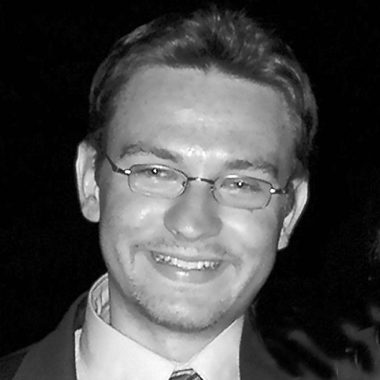
Ross Meyer
Truman Scholar and USA Today All-USA Academic First Team, Miami University
Dear Mrs. Reynolds,
Greetings! I hope this letter finds you well. I apologize if this letter seems late. I truly needed a couple of weeks to adequately reflect and process my experiences at the 2005 International Achievement Summit. Though I struggle to find the words to express my deep gratitude, I am writing to sincerely thank you for giving me the opportunity — and honor — to participate in the Summit.
Without a doubt, the Summit was the most inspirational experience of my life.
While I was inspired by all of the honorees and delegates in different ways, I was particularly inspired by the selfless work of public servants from around the world: from President Clinton’s impassioned speech on optimism and hope to Paul Rusesabagina’s heroic story of struggle and courage. I was especially moved by the performance of Wynton Marsalis in Jazz at Lincoln Center and awed while dancing next to Colin Powell listening to B.B. King, Naomi Judd and John Fogerty in the Waldorf-Astoria Hotel. Most memorable however, were the unscheduled, informal experiences interacting with some of the most inspiring people from around the world: from critiquing Van Gogh’s art alongside George Lucas, to discussing politics until 1:00 a.m. with Ralph Nader and Sam Donaldson, to hearing Secretary Norman Mineta and Tim Russert’s childhood stories. These personal interactions were both inspiring and empowering — they allowed me to see the human side of these extraordinary individuals.
My fellow student delegates also inspired me. Their enthusiasm, dedication and passion at such a young age were truly remarkable. I felt deeply honored to be a peer among the brightest, most promising young people from around the world. Because of your generosity and vision, I, along with hundreds of other young people, will continue to imagine and create a better world. I sincerely thank you, Mrs. Reynolds, for providing me with a new sense of faith and hope for a better future.
Best regards,
Ross Meyer
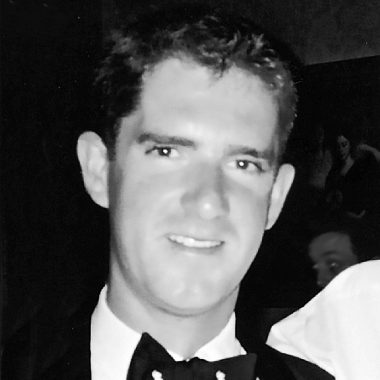
John Cameron
Rhodes Scholar, Jesus College, Oxford University
Dear Mrs. Reynolds,
I would like to express my sincere thanks for your invitation to join the 2005 International Achievement Summit, and for your generosity in ensuring that the Summit could take place.
It was, of course, an unrepeatable experience, and one which I will remember for many years. As a first-timer to New York, the Summit provided me with a wonderful introduction to many of the city’s most famous landmarks, made all the more remarkable by the company and the context in which we met them.
Perhaps the greatest highlight was meeting and listening to such people as Larry Page, Sir Roger Bannister and Sir John Bond who have embraced their success with self-effacing humility, who continually acknowledged the role of other people in helping them towards their success, and who showed a genuine interest in engaging with students. They for me were a particular inspiration, not so much because of their achievements, great as they undoubtedly are, but because of their humanity in the face of such success.
An enduring image in my memory will be a seemingly banal one of Colin Powell taking a snapshot of John Fogerty performing on stage. If part of the purpose of the Summit is to show young people that today’s leaders are themselves essentially ordinary men and women, that image in my mind proves the Summit was successful.
I wonder if I could ask you to pass on my thanks to your husband, and also to your Summit team who clearly worked very hard to make it a success?
My thanks again for your generosity, for the invitation, and for a few great days. It was a great honor to be included.
With best wishes,
John Cameron
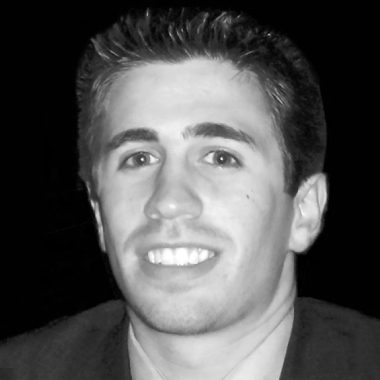
Seth Goldstein
Gates Scholar, Emmanuel College, Cambridge University
Dear Mrs. Reynolds,
I want to express my most sincere gratitude for allowing me to be a part of the International Achievement Summit in New York earlier this month. I am honestly at a loss to describe the magnitude of the gathering; one thing that I heard said many times by students and honored guests alike was that it is nearly impossible to convey the essence of the Summit to those who did not attend. Your husband also deserves credit for keeping the idea of the Academy of Achievement alive for all these years.
I think it is truly visionary to arrange for such a group of people to sequester themselves from the world for four days. To hear success stories and advice from household name luminaries in every field is incredibly powerful.
I was struck by the fact that while every speaker took a unique path to accomplishment, there were definitely common threads they all shared, such as hard work, dedication, perseverance and fortitude.
None of the distinguished guests have been given their success; they have all paid their dues and risen to the top due to various admirable qualities.
And as if it were not enough to inspire 250 of the world’s future leaders to success, there was the overwhelming message of social entrepreneurship that was approached in a multiplicity of ways. It was amazing to witness the passion with which the problems of the world were presented to us. Furthermore, instead of simply being a depressing list of maladies and malaises, we heard politicians, businessmen and scientists outline real, tangible solutions. Now that is hope! Far from being overwhelmed with the magnitude of the issues, I was blown away by the difference that these individuals have made and I now harbor a desire to do the same. The seed of social entrepreneurship has been planted within me, to grow and mature until one day I can follow in the footsteps of the great men and women to whom you have so graciously exposed me.
Again, thank you for your generosity and for your commitment to the values that the Achievement Summit espouses. I hope that the future years are just as successful and that the Academy continues to thrive. Take care!
Warmly,
Seth Goldstein
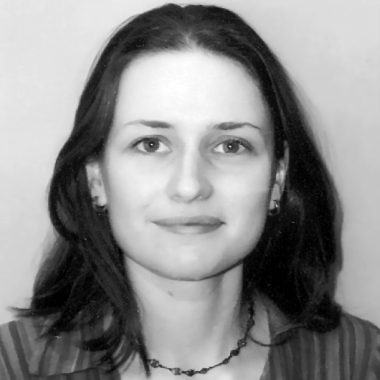
Anna Tunkel
Georgetown University School of Foreign Service
Dear Mrs. Reynolds,
I have recently arrived in Geneva for my internship with the UN High Commissioner for Refugees. The four amazing days I spent in New York have made a deep and lasting impression on me, and I wanted to extend my sincerest gratitude for your generosity and inspiration. As John Irving rightfully warned us, it is very difficult to convey to our friends and relatives what we have experienced during the International Achievement Summit; sometimes it seems like an unbelievable dream.
The Summit impacted and inspired me on many different levels. First of all, I was truly impressed with the political leaders and statesmen and their respective visions, for example, Bill Clinton’s sincere concern with the state of world affairs today and his eagerness to help with one of the world’s most pressing problems, HIV/AIDS, and Norman Mineta’s openness and perseverance that helped him achieve what he did despite cultural and political hurdles. At Georgetown, I already had the honor of listening to Colin Powell and George Tenet, but it was at the Summit that I had the opportunity to hear them speak from the heart, sharing their advice and personal experience with us.
Having studied politics and conflict management, I found the discussion panel on development issues in Africa at the United Nations particularly stimulating. Under Shashi Tharoor’s skilled moderation, the leaders of Botswana and Senegal showed impressive foresight for their countries’ futures. I was particularly impressed by the questions and comments of my fellow delegates during the panel. They expressed so many fresh, practical ideas for African development that I felt genuinely empowered and optimistic.
Finally, the Summit presented me with an incredible opportunity to further explore the connections between my cultural roots, identity and future goals. Since my early childhood in the former Soviet Union, my parents have always emphasized our Jewish traditions and heritage, and since we moved to Israel in 1991 I have felt a very strong affinity and connection to Israel. The combination of talking to the Israeli Nobel Prize laureate Aaron Ciechanover, listening to what Susan Blumenthal defined as her guiding values — tikun olam, mitzvah and tzedakah — and Elie Wiesel’s poignant speech all provided examples to me of how others have connected their identity and culture to both a broad vision of the common good, and a particular path to pursue that good.
Moreover, during these four days I saw New York from an entirely different angle: walking through the corridors of one of my favorite museums in the world, closed just for us; having a luncheon at Gracie Mansion; listening to a discussion of “Art and Creativity” on Broadway, or enjoying a concert in the spectacular Allen Room of Jazz at Lincoln Center. All of these complemented the sessions and made the overall experience absolutely unforgettable.
As I reflect back on the exceptional panels, dinners and the conversations I had with the luminaries present at the Summit, I realize that what inspires me most is that all of these people — be they politicians, writers, scientists or artists — all share a similar drive and commitment to making the world around them a better place. “Imagination is more important than knowledge,” said George Tenet. I want to thank you for having the vision and imagination that brought us all together, for your support of the Academy of Achievement and for wonderful programs like the Reynolds Fellowships for Social Entrepreneurship at Harvard and NYU. I have been truly encouraged to dare and strive to make the world and the society around me a better place.
With my best wishes and deepest appreciation,
Anna Tunkel
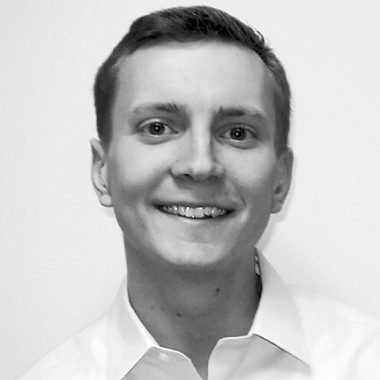
Jon Novotny
USA Today All-USA Academic First Team, Stanford Law School
Dear Mrs. Reynolds,
I am writing to express my most sincere appreciation for the opportunity to attend the 2005 International Achievement Summit. The four-day event will no doubt be remembered as one of the most remarkable experiences of my life. Each time that I reflect on the event, I cannot help but smile as my memory serves up yet another exciting conversation, inspirational speech, or outstanding performance. It was truly an honor to meet with such amazing leaders in such a diverse array of fields, and my experience certainly left me invigorated by the ability of the human spirit to achieve great things.
Among the many incredible people who attended the Summit, I was particularly impressed by the individuals who have made an active commitment to public service. From Wendy Kopp — a young woman who, much like me, felt compelled in college to find a way to make a real difference in the world — to Kenneth Behring — a wealthy man who much later in life made it his personal mission to help those in need by providing things as simple as wheelchairs — I was amazed to hear about the many ways in which normal human beings have accepted life’s noble call to service. I could obviously list many others at the Summit who have given their lives to making the world a better place, including Archbishop Desmond Tutu, Dr. Bernard Kouchner, and Paul Rusesabagina among many others, although it is difficult to express my profound amazement and appreciation for their many achievements in such a short space. Let me simply say that I was strongly moved by the myriad stories of public service and self-sacrifice that I heard during my four days in New York.
Another remarkable aspect of the Summit was the degree to which the distinguished speakers and guests made an effort to interact with the students. I recall you saying in your opening remarks that the Summit was about the students as much as it was about the many incredible people who were being honored as Golden Plate recipients. I did not immediately comprehend the reality of your statement, but as I continued to interact with the honorees and hear them direct their messages to us, I began to realize how truly you had spoken.
At dinner in the awe-inspiring Temple of Dendur, Latvian President Vaira Vike-Freiberga and her husband could not have been more engaging and interested in hearing about me and the other students seated nearby.
At breakfast the next morning, George Lucas was extremely friendly as he shared a few personal stories with the students at our table. Perhaps more touching, though, was the way in which every speaker presented his/her remarks in a manner that might enable the students to learn something and apply it in their own lives. The many amazing people in attendance were truly hopeful for the future, and they genuinely wanted to see us make a difference in the world.
Thank you for such an amazing experience — and thank you for making a difference.
Best regards,
Jon Novotny
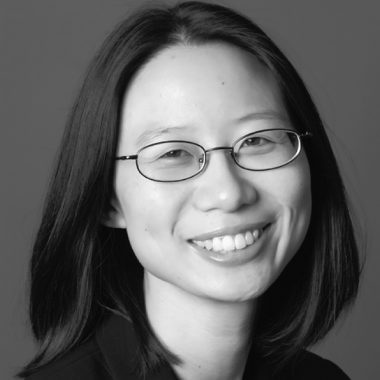
Amy Chen
Soros Fellow, Stanford Law School and Stanford Graduate School of Business
Dear Mrs. Reynolds,
I hope this finds you well; I apologize sincerely for the delay in writing to you. Though time has passed, my appreciation and deepest gratitude to you have not. Almost three months later, I still have to pinch myself every time I think back on the Academy or happen to flip through photos from that week. It was truly the experience of a lifetime, and I will not soon forget it.
The first evening, I had dinner with Yogi Berra, two Nobel Prize winners, and a handful of other student delegates that were similarly inspiring. It was hard to imagine what series of events had converged to allow me to enjoy a wonderful candlelit dinner in the Metropolitan Museum of Art, discussing baseball and genetics with the pioneers who defined these fields. I savored the moment, imagining that perhaps it was just the first evening that would be so spectacular. How happy I was to be wrong!
Over the course of the next few days, I had the privilege to hear from everyone from Bill Clinton and George Tenet to Colin Powell, Kathleen Battle, Dean Kamen, Desmond Tutu, Frank McCourt, Denzel Washington and Sam Donaldson. In panels, discussions and debates, these leaders generously shared their thoughts, advice and experiences.
What was even more remarkable than their formal talks, however, was their willingness to be vulnerable, real and accessible in one-on-one interaction. As we traveled together from one event to the next and enjoyed meals and performances together, I was privileged to learn more about these remarkable individuals and share my own life and experiences with them. I talked with Sir John Bond about how to instill values and improve the world through large multinational corporations, with Dean Kamen about opportunities to get involved in bringing clean water to the developing world, and with numerous others about how to find one’s place in the world. Many of these relationships will no doubt continue into the future, and I have you to thank for their genesis.
I can never repay your kindness and generosity, nor even imagine the impact that this experience will have on me and the hundreds of other delegates who were fortunate enough to attend. Instead, I simply send you my warmest and most heartfelt gratitude for the opportunity of a lifetime. I look forward to hearing about future conferences and about the initiatives at Harvard and NYU. I know they will be similarly spectacular.
With warmest thanks and regards,
Amy Chen
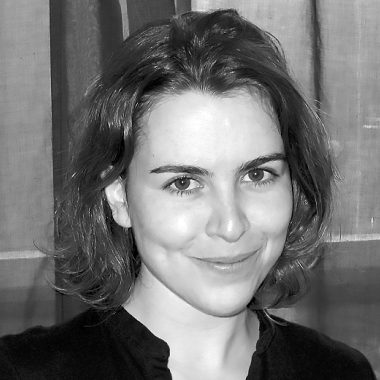
Ana Arjona
Yale University
Dear Mrs. Reynolds,
I am writing to sincerely thank you for inviting me to the 2005 International Achievement Summit that took place in New York last June. The day after the end of the Summit, I traveled to Colombia, my home country, to conduct fieldwork interviewing ex-combatants of guerrilla and paramilitary groups who had been fighting in the ongoing conflict. Right after my arrival in Colombia, I wanted to write a letter to express my gratitude for the experience as a unique opportunity that I would always remember.
When I started my work in Colombia, I began to realize that the influence the amazing people who talked to us during those days had on me was even greater, and promised to be much more long-lasting, than I was able to recognize at first.
I realized that this experience was already influencing the way in which I was approaching my work in general, and my fieldwork in particular. I decided that a letter where I could share with you a few details of the ways in which participating in the Summit positively affected me would be a much more sincere way to thank you for the effort you and your colleagues put into this amazing program. Please accept my apologies for my silence during these months.
During my stay in Colombia, I worked conducting a survey with about 800 demobilized combatants, most of whom are between the ages of 20 and 25, and who on average have spent six years fighting. Their experiences, which are not only those of perpetrators, but also of victims of poverty, domestic abuse, violence and exclusion, cry for radical transformations. Yet, given all the difficulties surrounding the ongoing conflict in Colombia and the situation of most of its population, it is hard to believe in the real possibility of making a difference. This is the comfortable excuse that is always easy to find when witnessing others’ ordeals in contexts as dramatic and difficult to solve as a civil war. But the memory of the words and lives of many of the speakers we had the opportunity to listen to during the Summit definitely inspired me to conceive change as possible, and of trying as an obligation. The common feelings of impotence and defeat that arise from stories as hard as those of my interviewees turned into a strong need to get involved and take responsibility. Pessimism, so easy to adopt because it often takes the mask of realism, turned into hope.
|
While doing my fieldwork, memories of the Summit returned to me at different times. I heard Mr. Rusesabagina’s words, describing a story where bravery and commitment allowed him to attempt the unthinkable in the midst of a bloody conflict and save the lives of at least one thousand Rwandans. I remembered the moving speech by Mr. Wiesel about his experience after surviving the Holocaust, which gave us an example of commitment and dedication and taught us an unforgettable lesson about the possibility of finding in the most horrifying and painful experiences the force required to undertake ennobling quests. Together with Desmond Tutu — whose speech was among the most impressive — Mr. Wiesel showed that experiencing and witnessing the most horrible acts of violence and cruelty does not need to lead to revenge and punishment. I also remembered Mr. Kouchner’s effort in creating Doctors Without Borders during so many years, which not only shows the importance of perseverance, but also illustrates the necessity of defying established rules and standards that impede us to improve human well-being. He also showed us how caring should go far beyond indignation and translate into action. Mr. Clinton’s speech linked this idea of responsibility towards others with the current trends of globalization and gave us political, economic and moral reasons to care — in action and not only in words — for the fate of others. I do not know to what extent my current work will allow me to make a contribution to our understanding of the very hard situations that civilians, combatants, and ex-combatants face during and after a civil war, and of what can be done about it. I also ignore, of course, if I will ever succeed. But the words of many of the persons I met at the Summit definitely encourage me to believe that this and other forms of contributing are possible, and even if we fail, trying is an obligation. After all, thanks to persons who tried — who took risks, attempted the unthinkable, and persisted — we are able to see, in spite of the horrors and tragedies of our species, sublime greatness and wisdom in works of art, scientific discoveries, humanitarian actions, and social movements. I wish I could tell all the experiences and ideas that touched me during those four days in New York. Artists, politicians, scientists, social activists, and journalists gave us reasons and energy to think of what we care – and should care – about and our responsibility to commit to it. Thank you, Mrs. Reynolds, for providing me the opportunity to witness so much wisdom, greatness and devotion to important causes. I know these memories will come back to me over and over for a long time — perhaps for my entire life — bringing to me the strength, and the demand, to give back.
Thank you for opening new windows of thought in my mind — one of the most precious gifts a person can receive. Sincerely, Ana M. Arjona |
